

Search Smartraveller

Latest update
Exercise normal safety precautions in Qatar.
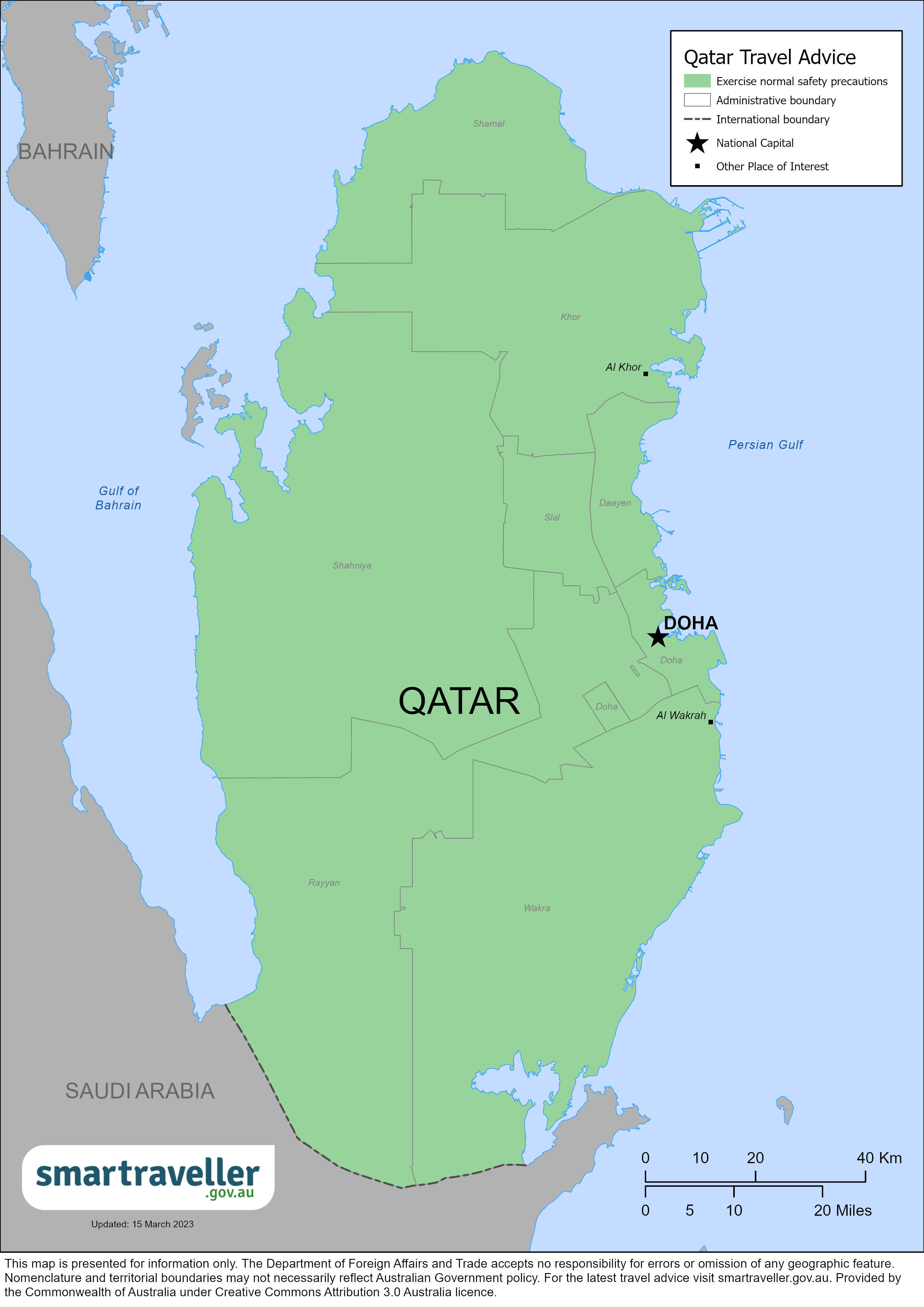
Qatar (PDF 452.33 KB)
The Middle East (PDF 1.45 MB)
Local emergency contacts
Fire and rescue services, medical emergencies.
Call 999, or go directly to the hospital.
Call 999, or visit the nearest police station.
Advice levels
- An increased threat of military and terrorist attacks against Israel and Israeli interests across the region and ongoing military action in the Occupied Palestinian Territories could lead to increased tensions in other locations in the Middle East. Demonstration and protest activity may occur, and localised security situations could deteriorate with little notice. Avoid all demonstrations and protests.
- This may also result in airspace closures, flight cancellations and flight diversions and other travel disruptions.
- Conflict in other areas of the Middle East and Gulf region could affect Qatar. Demonstrations and protests can occur and may turn violent. Avoid protests and large public gatherings as they can turn violent. Monitor local and international media and follow the advice of local authorities.
- Several terrorist attacks have happened in the wider Gulf region in recent years. Terrorists may target tourist areas and attractions. More attacks could occur. If there's a security incident, follow the advice of local authorities.
- Qatar has a low crime rate. Pickpocketing, bag snatching and other petty crimes are rare but can happen. Keep an eye on your belongings, especially in crowded places.
- Bank and credit card fraud can occur. Always keep your credit card in sight when shopping.
- Be prepared for extreme weather. From June to September, temperatures can reach over 50˚C. Flash flooding can sometimes happen. Follow the advice of local officials.
Full travel advice: Safety
- Cases of Middle East Respiratory Syndrome coronavirus have been reported in Qatar. Avoid contact with camels and products contaminated with camel secretions.
- Qatar can experience periods of high air pollution. Sand and dust storms can also worsen breathing issues. Talk to your doctor before you travel if you have concerns.
- Get comprehensive travel insurance before you leave. If you're staying longer than 30 days in Qatar, you must purchase health insurance from companies approved by the Qatari Ministry of Public Health at a standard cost of 50 Qatari Riyals per month.
Full travel advice: Health
- Qatari laws and customs are very different to those in Australia. If you're detained or arrested, ask police or prison officials to inform the Australian Embassy in Doha.
- Don't use or carry illegal drugs. Penalties for drug offences include long jail terms. Authorities can detain and deport you if you carry medication to treat HIV and hepatitis. This can also happen if you test positive for either illness.
- Sex outside of marriage is illegal. If you're the victim of a sexual assault, authorities may arrest, detain or prosecute you for adultery. If you're sexually assaulted in Qatar, ask us for consular help and advice on available support services immediately. Hamad General Hospital provides a Sexual Assault Service.
- Qatar has conservative codes of dress and behaviour. Visitors are expected to cover their shoulders and knees when visiting public places, including museums and other government buildings. If you're at tourist attractions, shopping malls and other public places, check the specific dress codes at the venue or online.
- Avoid commenting on Qatari culture, government policy or services, and commercial enterprises online while in Qatar. This includes reviewing hotel or restaurant experiences on social media. These activities could be considered cybercrime offences in Qatar.
Full travel advice: Local laws
- If you're staying longer than 30 days in Qatar, you must purchase health insurance either prior to or when you arrive in Qatar. You must purchase this from companies approved by the Qatari Ministry of Public Health . This mandatory insurance only covers medical treatment in Qatar, not other common issues relating to travel, for example, lost luggage (see 'Full advice/Travel' section).
You may be asked to show proof of your accommodation for the duration of your stay in Qatar on arrival at Hamad International Airport.
- Entry and exit conditions can change at short notice. Contact the nearest embassy or consulate of Qatar for the latest details.
- Driving in Qatar can be difficult and dangerous. Make sure you understand local laws and practices. It's illegal to use obscene language or hand gestures in traffic. It's also illegal to drive after drinking any amount of alcohol.
- Many areas of the Gulf are sensitive to security issues and territorial disputes. There's also a risk of piracy . If you're planning sea travel, refer to the International Maritime Bureau's piracy reports .
Full travel advice: Travel
Local contacts
- The Consular Services Charter details what we can and can't do to help you overseas.
- For consular assistance, contact the Australian Embassy in Doha . The working week is Sunday to Thursday.
- To stay up to date with local information, follow the Embassy's social media accounts.
Full travel advice: Local contacts
Full advice
Terrorism is a threat worldwide.
There have been several terrorist attacks in the Gulf region in recent years. These have occurred at places visited by foreigners. Take official warnings seriously.
Attacks could occur at any time and could target:
- places of worship
- hotels, restaurants, and bars
- sporting venues
- military sites
- transport hubs
- crowded public places
- other locations foreigners may visit
If there's an attack, leave the affected area straight away if it's safe to.
More information:
- Terrorist threats
Civil unrest and domestic political tension
Public protests and events that attract large groups of people can occur with little notice.
Conflict in the Middle East and Gulf region could affect Qatar.
To stay safe:
- avoid protests, demonstrations and other large public gatherings as they could turn violent
- be aware of local concerns about regional affairs
- check the news and other sources for details on planned and possible unrest or strikes
- plan your activities to avoid potential unrest
- change your travel plans if needed
- follow the advice of local authorities
If civil unrest disrupts your travel, contact your airline, travel agent or insurer for help.
- Demonstrations and civil unrest
Qatar has a low crime rate.
Pickpocketing, bag snatching and other petty crime is rare but can happen. Keep an eye on your belongings, especially in crowded places.
Banking and credit card fraud can occur. Always keep your credit card in sight.
Unaccompanied women can be vulnerable to harassment. Women should take care when travelling alone, particularly at night. You should pay attention to your immediate surroundings and exercise judgement.
Kidnapping can happen anywhere, anytime, including in destinations that are typically at lower risk.
The Australian Government's longstanding policy is that it doesn't make payments or concessions to kidnappers.
Cyber security
You may be at risk of cyber-based threats during overseas travel to any country. Digital identity theft is a growing concern. Your devices and personal data can be compromised, especially if you’re connecting to Wi-Fi, using or connecting to shared or public computers, or to Bluetooth.
Social media can also be risky in destinations where there are social or political tensions, or laws that may seem unreasonable by Australian standards. Travellers have been arrested for things they have said on social media. Don't comment on local or political events on your social media.
Cyber security when travelling overseas
Tours and adventure activities
Transport and tour operators don't always follow safety and maintenance standards. This includes 4WD adventure activities in the desert.
If you plan to do a tour or adventure activity :
- check if it's covered by your travel insurance policy
- check that vehicles are well-equipped for the desert
- check that there's enough water, fuel, food provisions and a mobile phone
- ask about, and insist on, minimum safety requirements
- always use available safety gear, such as life jackets or seatbelts
If proper safety equipment isn't available, use another provider.
- leave a copy of your travel itinerary with friends or relatives
- adjust your plans if the weather makes conditions unsafe
- seek advice from local authorities
Climate and natural disasters
Qatar often experiences extremely high temperatures. From June to September, the temperature can be higher than 50°C.
To avoid heat stroke and dehydration:
- drink plenty of water
- avoid long periods in the heat
Sandstorms and dust storms occur often.
If there's a natural disaster or severe weather :
- keep your passport in a safe, waterproof place
- closely monitor local media and other sources such as the Global Disaster Alert and Coordination System
- keep in contact with friends and family
- Travel insurance
Get comprehensive travel insurance before you leave.
Your policy needs to cover all overseas medical costs, including medical evacuation. The Australian Government won't pay for these costs.
If you're staying longer than 30 days in Qatar, you must purchase health insurance from companies approved by the Qatari Ministry of Public Health. This will cost 50 Qatari Riyals per month. Health insurance policies purchased outside Qatar may not meet Qatari entry requirements. For more information see: Mandatory Health Insurance Scheme .
The mandatory medical insurance required by all visitors to Qatar only covers medical treatment in Qatar, not other common issues relating to travel, for example, lost luggage.
If you can't afford travel insurance, you can't afford to travel. This applies to everyone, no matter how healthy and fit you are.
If you're not insured, you may have to pay many thousands of dollars up-front for medical care.
- what activities and care your policy covers
- that your insurance covers you for the whole time you'll be away
Physical and mental health
Consider your physical and mental health before you travel, especially if you have an existing medical condition.
See your doctor or travel clinic to:
- have a basic health check-up
- ask if your travel plans may affect your health
- plan any vaccinations you need
Do this at least 8 weeks before you leave.
If you have immediate concerns for your welfare or the welfare of another Australian, call the 24-hour Consular Emergency Centre on +61 2 6261 3305 or contact your nearest Australian Embassy, High Commission or Consulate to discuss counselling hotlines and services available in your location.
- General health advice
- Healthy holiday tips (Healthdirect Australia)
Medications
Not all medication available over the counter or by prescription in Australia is available in other countries. Some may even be considered illegal or a controlled substance, even if prescribed by an Australian doctor.
If you plan to bring medication, check if it's legal in Qatar. Take enough legal medicine for your trip. For more information check the Ministry of Public Health Guideline of controlled drugs for travellers [PDF 614KB] .
For any medication you're carrying, or that may be detected in your system, c arry a copy of your prescription or a letter from your doctor stating:
- what the medication is
- your required dosage
- that it's for personal use
Get medical documents authenticated by DFAT in Australia if needed.
- Embassy of Qatar in Australia
Health risks
Middle east respiratory syndrome coronavirus.
Cases of Middle East respiratory syndrome coronavirus have been reported in Qatar.
There may be a small risk of contracting MERS via ongoing physical contact with camels. To minimise this risk, avoid consuming raw camel milk, undercooked camel meat, or anything contaminated with camel secretions.
Get medical advice if you have a fever, cough, breathing difficulties or diarrhoea.
- MERS information card (Department of Health and Aged Care)
Air pollution
The level of air pollution in Qatar is high by global standards. Dust storms and sandstorms happen often, which can worsen breathing issues.
If you're concerned about the effects of pollution, or dust and sandstorms, speak to your doctor before leaving Australia.
Medical care
Medical facilities.
Public medical facilities in Qatar are comparable to those in Australia.
You may need to be evacuated if you become seriously ill or injured. Medical evacuation can be very expensive.
There are major differences between laws in Australia and Qatar. Behaviour that could be considered offensive or anti-social, but not criminal, in Australia could violate Qatari law.
You're subject to all local laws and penalties, including those that may appear harsh by Australian standards. Research local laws before travelling.
If you're arrested or jailed, the Australian Government will do what it can to help you under our Consular Services Charter . But we can't get you out of trouble or out of jail.
If you're detained or arrested, ask police or prison officials to inform the Australian Embassy in Doha.
To meet Qatari requirements, your Australian documents may need extra legal approval before you can use them overseas. Check the rules with the nearest embassy or consulate of Qatar .
Penalties for drug offences include long jail terms. Authorities could charge you with possession if they can detect illegal drugs in your body.
Medications that are available over the counter or by prescription in Australia may be illegal in Qatar.
Authorities can detain and deport you if you carry medication to treat HIV and hepatitis. This can also happen if you test positive to either illness.
Check the status of your medicines with an embassy or consulate of Qatar . See Health
- Carrying or using drugs
Commercial, civil, family and employment law
There are significant differences between Australia's and Qatar's laws on commercial, civil, family and employment matters.
If you become involved in local family law matters such as divorce, child custody and child support:
- get professional legal advice
- understand your rights and responsibilities under Qatari law
Commercial law
If you're involved in a commercial civil dispute, local firms or courts may take your passport.
Authorities can stop you leaving Qatar until the dispute is resolved.
If you owe money, you may be jailed until you settle your debts.
Authorities can arrest and jail you for fraud if you:
- present a cheque that bounces
- fail to pay bills or fines
- have an overdue personal loan or local credit card or similar
Authorities may detain you when you arrive if you have debts or criminal charges in Qatar. This can happen even if you're only transiting through Qatar.
If you're not a resident of Qatar, you may not get bail for crimes involving fraud.
Child custody laws are based on Islamic law.
Employment matters
If you have a job in Qatar, you may require an exit permit from your employer to leave the country.
- Living or working overseas
- Legalising documents
Eating and drinking laws
It's illegal to:
- eat, drink or smoke in public between sunrise and sunset during Ramadan
- drink alcohol, if you're Muslim
- drink alcohol or be drunk in public
- drink alcohol outside licensed premises
Expats living in Qatar can buy alcohol on a permit system.
Alcohol is currently only available to visitors at licenced hotel restaurants and bars. The legal drinking age in Qatar is 21. It is an offence to drink alcohol or be drunk in a public place.
The importation of alcohol into the State of Qatar is illegal. You will not be able to purchase alcohol from duty free in airports.
Sex and intimacy laws
- have sex outside marriage
- be sexually intimate or overly affectionate in public
- engage in same-sex relationships
- stalk or harass women verbally, physically or online
- Advice for LGBTI travellers
Other illegal activities
- bring pornography, pork products, alcohol, firearms or religious books or materials other than those relating to Islam into Qatar
- photograph government buildings or military sites
- photograph local people, particularly women, without permission
Victims of sexual assault
Depending on the situation, victims of sexual assault in Qatar, may face arrest, detention or criminal prosecution for having sex outside of marriage.
If you're sexually assaulted in Qatar, contact the Australian Embassy in Doha or the Consular Emergency Centre in Canberra immediately. Ask for guidance and information on support services.
Consular officers can't provide legal or medical advice. They can provide lists of English-speaking service providers who may be able to help you.
- Sexual assault
- Sexual Assault Service (Hamad General Hospital)
Australian laws
Some Australian criminal laws still apply when you're overseas. If you break these laws, you may face prosecution in Australia.
- Staying within the law and respecting customs
Dual citizenship
Qatar doesn't recognise dual nationality.
If you're a dual national and authorities arrest or detain you, o ur ability to deliver consular services may be limited.
Always travel on your Australian passport .
The children of Qatari fathers automatically receive Qatari citizenship at birth. Qatari fathers can stop their children from leaving Qatar.
- Dual nationals
Local customs
There are conservative codes of dress and behaviour in Qatar. Visitors must cover their shoulders and knees when visiting public places like museums and other government buildings. If you plan to visit tourist attractions, shopping malls and other public places, check the specific dress codes. Look for details on display at the venues or on their websites. Take care not to offend. If in doubt, seek local advice.
Avoid commenting on Qatari culture, government policy or services, and commercial enterprises online while in Qatar. This includes reviewing hotel or restaurant experiences on social media. These activities could be considered slanderous or cyber-crime offences in Qatar.
Offensive behaviour
Swearing and making rude gestures are considered obscene acts and you can be fined, jailed and/or deported. Take particular care when dealing with the police and other officials.
The Islamic holy month of Ramadan is observed in Qatar. Respect religious and cultural customs and laws during this time.
During Ramadan, eating, drinking and smoking may be illegal in public during the day. If you're not fasting, avoid these activities around people who are. Seek local advice to avoid offence.
Explore our Ramadan page to learn more, including dates for Ramadan.
Visas and border measures
Every country or territory decides who can enter or leave through its borders. For specific information about the evidence you'll need to enter a foreign destination, check with the nearest embassy, consulate or immigration department of the destination you're entering.
Australian passport holders are entitled to apply for a visa on arrival. The type of visa you need will depend on your country of residence and the purpose of your travel.
Entry and exit rules can change at short notice. For details about visas, currency, customs and quarantine regulations, contact:
- Visas & Immigration (Hamad International Airport)
- the Embassy of the State of Qatar
- the official State of Qatar Government website (in English)
Qatari authorities won't issue visas in an Australian emergency passport. You can only use an emergency passport to leave or travel through Qatar.
Border measures
Transiting through Qatar is permitted if you meet the requirements of your final destination country. There are no additional requirements for transiting passengers, even if you choose to use the transit hotel within the airport. Further information about transiting through Qatar can be found on the webpage for Hamad International Airport and Visit Qatar .
For more information, call 109 from inside Qatar or +974 44069999 from outside Qatar, or contact the nearest Qatari embassy or consulate .
Some countries won't let you enter unless your passport is valid for 6 months after you plan to leave that country. This can apply even if you're just transiting or stopping over.
Some foreign governments and airlines apply the rule inconsistently. Travellers can receive conflicting advice from different sources.
You can end up stranded if your passport is not valid for more than 6 months.
The Australian Government does not set these rules. Check your passport's expiry date before you travel. If you're not sure it'll be valid for long enough, consider getting a new passport .
Lost or stolen passport
Your passport is a valuable document. It's attractive to people who may try to use your identity to commit crimes.
Some people may try to trick you into giving them your passport. Always keep it in a safe place.
If your passport is lost or stolen, tell the Australian Government as soon as possible:
- In Australia, contact the Australian Passport Information Service .
- If you're overseas, contact the nearest Australian embassy or consulate .
The Australian Embassy can't issue a new passport in the airport transit area. If you're in the transit area without a passport, you'll need to return to Australia. In Australia, you'll need to apply for a new passport.
Passport with ‘X’ gender identifier
Although Australian passports comply with international standards for sex and gender, we can’t guarantee that a passport showing 'X' in the sex field will be accepted for entry or transit by another country. Contact the nearest embassy, high commission or consulate of your destination before you arrive at the border to confirm if authorities will accept passports with 'X' gender markers.
LGBTI travellers
The local currency is the Qatari Riyal (QAR).
Change currency only at commercial banks and official exchange bureaus.
Most businesses that deal with tourists accept international credit cards. ATMs are widely available.
Ask your bank if your cards will work in Qatar.
Local travel
Driving permit.
You can drive in Qatar with:
- a valid Australian driver's licence
- an International Driving Permit (IDP)
Get your IDP before leaving home.
If you hold a residence permit, you'll need a Qatari driver's licence.
- General Directorate of Traffic (Qatar Ministry of Interior)
Road travel
Traffic accidents are a leading cause of death in Qatar. It's challenging and dangerous to drive due to road construction and high speeds.
Visitors or business visa holders with a driver's licence from their home country can drive for up to 15 days from the date of entry into Qatar. You'll need to apply for a temporary Qatar driving licence to extend this.
If you have an international licence, you can drive for up to 6 months from your date of entry into Qatar.
If you have a non-Qatari licence, you can rent a car if you are 25 years or older and have held a valid driving licence for at least 12 months. The availability of rental cars is likely to be low due to the high demand in Qatar.
Gulf Cooperation Council (GCC) residents with a GCC driver's licence can drive for up to 3 months from their date of entry into Qatar.
Be careful driving on rural roads. They can be dangerous because of:
- unsafe driving
- drifting sands
Sandstorms and dust storms occur. This can significantly reduce visibility and lead to road accidents.
Rain can cause dangerous road conditions and flash flooding.
It's illegal:
- to drive with any alcohol in your system
- to leave the scene of an accident as a driver until the police tell you to do so
You can only move your vehicle off the road if there are no injuries from the accident.
It's also illegal to use obscene language and hand gestures in traffic. This includes responding to other drivers' poor driving or traffic incidents.
If you plan to drive:
- check you have enough insurance coverage before driving
- check local traffic laws and practices before driving
- drive carefully and legally
- avoid arguments over traffic incidents
If you have an accident, contact the police and stay with your vehicle if it's safe to do so.
- Driving or riding
Motorcycles
Check if your travel insurance policy covers you when using a motorbike, quad bike or similar vehicle.
Always wear a helmet.
Avoid touts and only use registered taxis and limousines. Arrange these through your accommodation. Avoid shared taxis.
Ride-sharing applications such as Uber are used extensively by the community, particularly in Doha.
Public transport
Qatar has a well-developed bus transport network and metro system. Information and timetables can be found online at Mowasalat
Taxis and ride share vehicles are widely available in Doha.
- Transport and getting around safely
Many areas of the Gulf are sensitive to security issues and territorial disputes.
Disputes about sea boundaries can occur. There are disagreements about the sea boundaries and control of Abu Musa and Tunbs islands in the Southern Gulf.
Authorities can inspect your vessel and detain or arrest you if you're in sensitive waters.
Piracy happens in the Gulf. The International Maritime Bureau issues piracy reports on its website.
- Travelling by boat
DFAT doesn't provide information on the safety of individual commercial airlines or flight paths.
Check Qatar's air safety profile with the Aviation Safety Network.
Emergencies
Depending on what you need, contact your:
- family and friends
- travel agent
- insurance provider
Always get a police report when you report a crime.
Your insurer should have a 24-hour emergency number.
Consular contacts
Read the Consular Services Charter for what the Australian Government can and can't do to help you overseas.
For consular assistance, contact the Australian Embassy in Doha.
The working week is Sunday to Thursday.
Australian Embassy, Doha
Tornado Tower Majlis Al Taawon Street Doha, Qatar Phone: (+974) 4007 8500
Email: [email protected] Website: qatar.embassy.gov.au
Check the Embassy website for details about opening hours and any temporary closures.
24-hour Consular Emergency Centre
In a consular emergency, if you can't contact an embassy, call the 24-hour Consular Emergency Centre on:
- +61 2 6261 3305 from overseas
- 1300 555 135 in Australia

Travelling to Qatar?
Sign up to get the latest travel advice updates..
Be the first to know official government advice when travelling.
We’re sorry, this site is currently experiencing technical difficulties. Please try again in a few moments. Exception: request blocked
- Skip to main content
- Skip to "About this site"
Language selection
Search travel.gc.ca.
Help us to improve our website. Take our survey !
COVID-19: travel health notice for all travellers
Qatar travel advice
Latest updates: The Health section was updated - travel health information (Public Health Agency of Canada)
Last updated: May 6, 2024 10:24 ET
On this page
Safety and security, entry and exit requirements, laws and culture, natural disasters and climate, qatar - take normal security precautions.
Take normal security precautions in Qatar
Back to top
Regional conflicts
Conflicts in the Middle East and the Gulf region could affect Qatar. Regional tensions can flare up at any time, resulting in an unpredictable and volatile security situation.
- Monitor the security situation
- Follow the instructions of local authorities
There is a constant terrorist threat throughout the Arabian Peninsula. Reports of planned terrorist attacks occasionally emerge. Terrorists are likely to try to carry out attacks in Qatar.
Targets could include:
- government buildings, including schools
- places of worship
- airports and other transportation hubs and networks
- public areas such as tourist attractions, restaurants, bars, coffee shops, shopping centres, markets, hotels and other sites frequented by foreigners
Always be aware of your surroundings when in public places.
Be particularly vigilant during:
- sporting events
- religious holidays
- public celebrations
- major political events, such as elections
Terrorists may use such occasions to mount attacks.
The crime rate is low and violence is rare. However, credit card fraud does take place. Ensure that personal belongings, including your passport and other travel documents, are secure at all times.
Women’s safety
Although rare, women travellers may be subject to some forms of harassment, verbal abuse, or physical assaults. Local authorities’ response to reports of sexual violence may differ substantially from the Canadian context. Foreign women have been detained and accused of extramarital sex after reporting sexual assault.
- Avoid travelling alone after dark
- Be careful when dealing with strangers or recent acquaintances
- If you are the victim of a sexual assault, you should report it immediately to the nearest Government of Canada office
Advice for women travellers
Demonstrations
Demonstrations may occur. Even peaceful demonstrations can turn violent at any time. They can also lead to disruptions to traffic and public transportation.
- Avoid areas where demonstrations and large gatherings are taking place
- Monitor local media for information on ongoing demonstrations
Mass gatherings (large-scale events)
Desert excursions
Desert excursions can be hazardous. Off-road driving should only be undertaken in a convoy of four-wheel drive vehicles with an experienced guide.
If engaging in desert expeditions or trekking:
- never do so alone
- always hire an experienced guide from a reputable company
- travel in a 4 x 4 vehicle
- buy travel insurance that includes helicopter rescue and medical evacuation
- ensure that your physical condition is good enough to meet the challenges of your activity
- avoid venturing off marked trails
- ensure that you're properly equipped and well informed about weather and other conditions that may pose a hazard
- carry sufficient water supply and pay attention to the symptoms of dehydration and heatstroke, both of which can be fatal
- inform a family member or friend of your itinerary, including when you expect to be back
- obtain detailed information on each activity before setting out
Road safety
Road conditions.
Road conditions can vary greatly throughout the country. While the roads in Doha are generally in good condition, they are often over-crowded and commonly under construction. Outside of Doha, poorly lit roads and wandering livestock may pose a risk. Roads can be muddy during the winter rain season.
Driving safety
Traffic drives on the right.
Accidents causing fatalities are common and one of Qatar's leading causes of death. Drivers don't generally drive safely. They often drive at excessive speeds, are extremely aggressive and reckless. They don't respect traffic laws.
In case of an accident:
- move the vehicle to the nearest parking area if you can so do safely; you can be fined for blocking traffic
- call 999 and wait for the police to arrive
Leaving the scene is considered a criminal offence.
Public transportation
A public bus system is available, though, it runs limited routes.
Officially marked taxis are metered.
- Use officially marked taxis only
- Negotiate fares in advance, or insist that the driver use the meter
- Avoid taking shared taxis
- Never enter a cab if it already has one or more passengers
Private car services
Ridesharing application and limousine services are available and a popular method of transportation.
- Be vigilant when travelling in a private car
- Take note of the driver and vehicles' information
Marine transportation
Iran and the United Arab Emirates both claim sovereignty over the islands of:
Some vessels entering these areas have been reported detained.
Exercise caution if travelling by sea in the Gulf. Pirate attacks and armed robbery against ships have also occurred in coastal waters. Mariners should take appropriate precautions.
Live piracy report - International Maritime Bureau
We do not make assessments on the compliance of foreign domestic airlines with international safety standards.
Information about foreign domestic airlines
Every country or territory decides who can enter or exit through its borders. The Government of Canada cannot intervene on your behalf if you do not meet your destination’s entry or exit requirements.
We have obtained the information on this page from the Qatari authorities. It can, however, change at any time.
Verify this information with the Foreign Representatives in Canada .
Entry requirements vary depending on the type of passport you use for travel.
Before you travel, check with your transportation company about passport requirements. Its rules on passport validity may be more stringent than the country’s entry rules.
Regular Canadian passport
Your passport must be valid at least 6 months beyond the date you expect to leave Qatar.
Passport for official travel
Different entry rules may apply.
Official travel
Passport with “X” gender identifier
While the Government of Canada issues passports with an “X” gender identifier, it cannot guarantee your entry or transit through other countries. You might face entry restrictions in countries that do not recognize the “X” gender identifier. Before you leave, check with the closest foreign representative for your destination.
Other travel documents
Different entry rules may apply when travelling with a temporary passport or an emergency travel document. Before you leave, check with the closest foreign representative for your destination.
Useful links
- Foreign Representatives in Canada
- Canadian passports
Tourist visa: not required Business visa: not required Student visa: required Work permit: required Residence permit: required
Visas – Qatar Tourism
Residence and work permits
You must have both a residence and work permit to work in Qatar. To receive these permits, you must be sponsored by an employer.
While most employees are free to leave and enter Qatar, the employer controls the issuance of exit permits for essential employees. The employer may designate up to 5% of its employees as “essential.” If you are identified as an “essential employee”, you must obtain your employer's permission to exit Qatar, even for personal or emergency travel.
In the event of a contract or employment dispute, Qatari authorities refer to the Arabic language of a contract.
Entry bans
You could be denied entry into Qatar if your passport bore an Israeli visa, an Israeli border stamp or an Egyptian or Jordanian border stamp issued by an office bordering Israel.
Local authorities may prevent you from leaving Qatar if you have incurred loans and debts with a Qatari institution. You must be free of loans and debts to leave the country.
Similarly, a pending legal proceeding may cause authorities to issue a travel ban that would prevent you from leaving Qatar.
Health insurance
You must obtain a health insurance policy recognised by the Qatari Ministry of Public Health to enter Qatar. You can find the list of recognised insurance providers and purchase the insurance policy online.
- Mandatory Health Insurance Scheme – Ministry of Public Health of Qatar
- List of registered insurance providers – Ministry of Public Health of Qatar
Children and travel
Learn more about travelling with children .
Yellow fever
Learn about potential entry requirements related to yellow fever (vaccines section).
Relevant Travel Health Notices
- Global Measles Notice - 13 March, 2024
- COVID-19 and International Travel - 13 March, 2024
This section contains information on possible health risks and restrictions regularly found or ongoing in the destination. Follow this advice to lower your risk of becoming ill while travelling. Not all risks are listed below.
Consult a health care professional or visit a travel health clinic preferably 6 weeks before you travel to get personalized health advice and recommendations.
Routine vaccines
Be sure that your routine vaccinations , as per your province or territory , are up-to-date before travelling, regardless of your destination.
Some of these vaccinations include measles-mumps-rubella (MMR), diphtheria, tetanus, pertussis, polio, varicella (chickenpox), influenza and others.
Pre-travel vaccines and medications
You may be at risk for preventable diseases while travelling in this destination. Talk to a travel health professional about which medications or vaccines may be right for you, based on your destination and itinerary.
There is a risk of hepatitis A in this destination. It is a disease of the liver. People can get hepatitis A if they ingest contaminated food or water, eat foods prepared by an infectious person, or if they have close physical contact (such as oral-anal sex) with an infectious person, although casual contact among people does not spread the virus.
Practise safe food and water precautions and wash your hands often. Vaccination is recommended for all travellers to areas where hepatitis A is present.
Measles is a highly contagious viral disease. It can spread quickly from person to person by direct contact and through droplets in the air.
Anyone who is not protected against measles is at risk of being infected with it when travelling internationally.
Regardless of where you are going, talk to a health care professional before travelling to make sure you are fully protected against measles.
Hepatitis B is a risk in every destination. It is a viral liver disease that is easily transmitted from one person to another through exposure to blood and body fluids containing the hepatitis B virus. Travellers who may be exposed to blood or other bodily fluids (e.g., through sexual contact, medical treatment, sharing needles, tattooing, acupuncture or occupational exposure) are at higher risk of getting hepatitis B.
Hepatitis B vaccination is recommended for all travellers. Prevent hepatitis B infection by practicing safe sex, only using new and sterile drug equipment, and only getting tattoos and piercings in settings that follow public health regulations and standards.
The best way to protect yourself from seasonal influenza (flu) is to get vaccinated every year. Get the flu shot at least 2 weeks before travelling.
The flu occurs worldwide.
- In the Northern Hemisphere, the flu season usually runs from November to April.
- In the Southern Hemisphere, the flu season usually runs between April and October.
- In the tropics, there is flu activity year round.
The flu vaccine available in one hemisphere may only offer partial protection against the flu in the other hemisphere.
The flu virus spreads from person to person when they cough or sneeze or by touching objects and surfaces that have been contaminated with the virus. Clean your hands often and wear a mask if you have a fever or respiratory symptoms.
Coronavirus disease (COVID-19) is an infectious viral disease. It can spread from person to person by direct contact and through droplets in the air.
It is recommended that all eligible travellers complete a COVID-19 vaccine series along with any additional recommended doses in Canada before travelling. Evidence shows that vaccines are very effective at preventing severe illness, hospitalization and death from COVID-19. While vaccination provides better protection against serious illness, you may still be at risk of infection from the virus that causes COVID-19. Anyone who has not completed a vaccine series is at increased risk of being infected with the virus that causes COVID-19 and is at greater risk for severe disease when travelling internationally.
Before travelling, verify your destination’s COVID-19 vaccination entry/exit requirements. Regardless of where you are going, talk to a health care professional before travelling to make sure you are adequately protected against COVID-19.
Yellow fever is a disease caused by a flavivirus from the bite of an infected mosquito.
Travellers get vaccinated either because it is required to enter a country or because it is recommended for their protection.
- There is no risk of yellow fever in this country.
Country Entry Requirement*
- Proof of vaccination is required if you are coming from a country where yellow fever occurs.
Recommendation
- Vaccination is not recommended.
- Discuss travel plans, activities, and destinations with a health care professional.
- Contact a designated Yellow Fever Vaccination Centre well in advance of your trip to arrange for vaccination.
About Yellow Fever
Yellow Fever Vaccination Centre
* It is important to note that country entry requirements may not reflect your risk of yellow fever at your destination. It is recommended that you contact the nearest diplomatic or consular office of the destination(s) you will be visiting to verify any additional entry requirements.
In this destination, rabies is carried by dogs and some wildlife, including bats. Rabies is a deadly disease that spreads to humans primarily through bites or scratches from an infected animal. While travelling, take precautions , including keeping your distance from animals (including free-roaming dogs), and closely supervising children.
If you are bitten or scratched by an animal while travelling, immediately wash the wound with soap and clean water and see a health care professional. Rabies treatment is often available in this destination.
Before travel, discuss rabies vaccination with a health care professional. It may be recommended for travellers who are at high risk of exposure (e.g., occupational risk such as veterinarians and wildlife workers, children, adventure travellers and spelunkers, and others in close contact with animals).
Safe food and water precautions
Many illnesses can be caused by eating food or drinking beverages contaminated by bacteria, parasites, toxins, or viruses, or by swimming or bathing in contaminated water.
- Learn more about food and water precautions to take to avoid getting sick by visiting our eat and drink safely abroad page. Remember: Boil it, cook it, peel it, or leave it!
- Avoid getting water into your eyes, mouth or nose when swimming or participating in activities in freshwater (streams, canals, lakes), particularly after flooding or heavy rain. Water may look clean but could still be polluted or contaminated.
- Avoid inhaling or swallowing water while bathing, showering, or swimming in pools or hot tubs.
Typhoid is a bacterial infection spread by contaminated food or water. Risk is higher among children, travellers going to rural areas, travellers visiting friends and relatives or those travelling for a long period of time.
Travellers visiting regions with a risk of typhoid, especially those exposed to places with poor sanitation, should speak to a health care professional about vaccination.
Insect bite prevention
Many diseases are spread by the bites of infected insects such as mosquitoes, ticks, fleas or flies. When travelling to areas where infected insects may be present:
- Use insect repellent (bug spray) on exposed skin
- Cover up with light-coloured, loose clothes made of tightly woven materials such as nylon or polyester
- Minimize exposure to insects
- Use mosquito netting when sleeping outdoors or in buildings that are not fully enclosed
To learn more about how you can reduce your risk of infection and disease caused by bites, both at home and abroad, visit our insect bite prevention page.
Find out what types of insects are present where you’re travelling, when they’re most active, and the symptoms of the diseases they spread.
There is a risk of chikungunya in this country. The risk may vary between regions of a country. Chikungunya is a virus spread through the bite of an infected mosquito. Chikungunya can cause a viral disease that typically causes fever and pain in the joints. In some cases, the joint pain can be severe and last for months or years.
Protect yourself from mosquito bites at all times. There is no vaccine available for chikungunya.
Animal precautions
Some infections, such as rabies and influenza, can be shared between humans and animals. Certain types of activities may increase your chance of contact with animals, such as travelling in rural or forested areas, camping, hiking, and visiting wet markets (places where live animals are slaughtered and sold) or caves.
Travellers are cautioned to avoid contact with animals, including dogs, livestock (pigs, cows), monkeys, snakes, rodents, birds, and bats, and to avoid eating undercooked wild game.
Closely supervise children, as they are more likely to come in contact with animals.
Cases of locally-acquired Middle East respiratory syndrome (MERS) have been reported in this country.
MERS is a viral respiratory disease caused by the Middle East respiratory syndrome coronavirus (MERS-CoV).
Some people infected with MERS-CoV experience no symptoms, while others may experience mild flu-like or more severe pneumonia-like symptoms. About one-third of reported cases have result ed in death.
Eat and drink safely , and avoid close contact with animals, especially camels. If you must visit a farm or market, make sure you practise good hygiene and wash your hands before and after contact with animals.
There is currently no licensed vaccine to protect against MERS.
Person-to-person infections
Stay home if you’re sick and practise proper cough and sneeze etiquette , which includes coughing or sneezing into a tissue or the bend of your arm, not your hand. Reduce your risk of colds, the flu and other illnesses by:
- washing your hands often
- avoiding or limiting the amount of time spent in closed spaces, crowded places, or at large-scale events (concerts, sporting events, rallies)
- avoiding close physical contact with people who may be showing symptoms of illness
Sexually transmitted infections (STIs) , HIV , and mpox are spread through blood and bodily fluids; use condoms, practise safe sex, and limit your number of sexual partners. Check with your local public health authority pre-travel to determine your eligibility for mpox vaccine.
Medical services and facilities
Health care is very good in Qatar.
The country has a strong public healthcare system. Private institutions are also accessible and provide good healthcare.
Make sure you get travel insurance that includes coverage for medical evacuation and hospital stays.
Travel health and safety
Keep in Mind...
The decision to travel is the sole responsibility of the traveller. The traveller is also responsible for his or her own personal safety.
Be prepared. Do not expect medical services to be the same as in Canada. Pack a travel health kit , especially if you will be travelling away from major city centres.
Qatari and Canadian criminal law systems are significantly different. Laws, penalties and legal procedures may vary.
You must abide by local laws.
Learn about what you should do and how we can help if you are arrested or detained abroad .
Legal process
Suspects and witnesses to incidents may be detained with limited or no access to legal counsel or consular officials for 3-5 days.
Qatari officials may issue a travel ban pending the resolution of the case. These processes can last up to several years.
Penalties for possession, use or trafficking of illegal drugs are severe. Convicted offenders can expect heavy fines and lengthy jail sentences.
The consumption of alcohol in public is illegal. Avoid drinking alcohol outside licensed premises.
Drugs, alcohol and travel
2SLGBTQI+ travellers
Qatari law criminalizes sexual acts and relationships between persons of the same sex.
2SLGBTQI+ travellers could also be discriminated against or detained based on their sexual orientation, gender identity, gender expression, or sex characteristics.
Those convicted can face up to ten years in prison.
2SLGBTQI+ travellers should carefully consider the risks of travelling to Qatar.
Travel and your sexual orientation, gender identity, gender expression and sex characteristics
In 2024, the lunar month of Ramadan is expected to begin on or around March 10.
In public, between sunrise and sunset, refrain from:
Religious proselytism
Religious proselytism is illegal.
Avoid engaging in religious activities that contradict or challenge Islamic teachings and values. This includes preaching, possessing, or distributing religious literature or material.
Dress and behaviour
Qatar customs, laws and regulations adhere closely to Islamic practices and beliefs.
Public displays of affection, including holding hands and kissing, is not well socially accepted.
Foreign female travellers are not typically expected to wear head covers. However, revealing clothing is considered inappropriate.
To avoid offending local sensitivities:
- dress conservatively
- behave discreetly
- respect religious and social traditions
- seek permission from locals before photographing them
Common law partnership is illegal in Qatar. Men and women are not permitted to share a home unless they are legally married or are related to one another.
If you marry a Qatari citizen, the Qatari government may inform you that you have lost your Canadian citizenship. Foreign governments don't have the authority to strip you of your Canadian citizenship. If this occurs, contact the nearest Canadian government office as soon as possible.
Sexual relations outside of marriage are a criminal offence.
Marriage outside Canada
Qatar family law is different from Canadian family law. Decisions are based on Islamic law.
Children of a Qatari father automatically acquire Qatari citizenship at birth. They must enter and leave the country on a Qatari passport.
If you are involved in a custody dispute in Qatar, consult a Qatari lawyer for advice and assistance regarding your own specific situation.
International Child Abduction
The Hague Convention on the Civil Aspects of International Child Abduction is an international treaty. It can help parents with the return of children who have been removed to or retained in certain countries in violation of custody rights. It does not apply between Canada and Qatar.
If your child was wrongfully taken to, or is being held in Qatar by an abducting parent:
- act as quickly as you can
- consult a lawyer in Canada and in Qatar to explore all the legal options for the return of your child
- report the situation to the nearest Canadian government office abroad or to the Vulnerable Children’s Consular Unit at Global Affairs Canada by calling the Emergency Watch and Response Centre.
If your child was removed from a country other than Canada, consult a lawyer to determine if The Hague Convention applies.
Be aware that Canadian consular officials cannot interfere in private legal matters or in another country’s judicial affairs.
- International Child Abduction: A Guidebook for Left-Behind Parents
- Travelling with children
- Canadian embassies and consulates by destination
- Emergency Watch and Response Centre
Other illegal activities
The following activities are illegal in Qatar and punishable by heavy fines or jail time:
- photographing government buildings and military installations
- littering in public spaces and common areas of public buildings
- trafficking or eating pork
- issuing bounced checks
- engaging in prostitution
- possessing pornographic material
- spitting in public places, including on beaches
- cutting, uprooting, burning and damaging trees, shrubs, and weeds, as well as stripping them of their leaves or bark
Dual citizenship
Dual citizenship is not legally recognized in Qatar.
If local authorities consider you a citizen of Qatar, they may refuse to grant you access to Canadian consular services. This will prevent us from providing you with those services.
Travellers with dual citizenship
Identification
Local authorities may ask you to show identification at any time.
- Carry photo identification at all times.
- Keep a photocopy of your passport and visa or residence permit in a safe place, in case they are lost or confiscated.
You can drive in Qatar with your Canadian driver's license for up to 7 days.
You must carry an international driving permit if you plan to drive beyond 7 days in the country. New residents may use an International driving permit for a maximum of six months. In that period, you can convert it into a valid Qatari driving licence.
Driving laws are severe in Qatar. Local authorities strictly enforce them.
The country has a zero tolerance policy for drinking and driving.
International Driving Permit
The currency is the Qatar riyal (QAR). Credit cards are widely accepted.
If you are carrying more than QAR50,000, or the equivalent in other currencies, you must complete a declaration form when you enter or leave the country.
Items to be declared include, but are not limited to:
- currency, the Qatari riyal and foreign currencies
- travellers cheques, money orders and cheques
- precious metals
- precious stones
You can expect fines, imprisonment or seizure of such funds if you fail to comply with these rules.
High levels of humidity and severe heat occur from June to September.
Dust storms
Sand and dust storms pose a risk as they reduce visibility and can cause respiratory illness. These storms can also disrupt air travel and road traffic.
Drought and flooding
Qatar has been facing a water crisis in recent years, leading to drought and desertification. While infrequent, torrential rains and heavy flooding also occur in coastal areas.
In the event of flooding:
- avoid the affected area
- stay informed of the latest regional weather forecasts
- follow the instructions of local authorities
The rainy season extends from December to January. Seasonal flooding can hamper overland travel and reduce the provision of essential services. Roads may become impassable and bridges damaged.
Tornadoes, cyclones, hurricanes, typhoons and monsoons
Local services
Dial 999 for emergency assistance.
Consular assistance
For emergency consular assistance, call the Embassy of Canada in Doha and follow the instructions. At any time, you may also contact the Emergency Watch and Response Centre in Ottawa.
The decision to travel is your choice and you are responsible for your personal safety abroad. We take the safety and security of Canadians abroad very seriously and provide credible and timely information in our Travel Advice to enable you to make well-informed decisions regarding your travel abroad.
The content on this page is provided for information only. While we make every effort to give you correct information, it is provided on an "as is" basis without warranty of any kind, expressed or implied. The Government of Canada does not assume responsibility and will not be liable for any damages in connection to the information provided.
If you need consular assistance while abroad, we will make every effort to help you. However, there may be constraints that will limit the ability of the Government of Canada to provide services.
Learn more about consular services .
Risk Levels
take normal security precautions.
Take similar precautions to those you would take in Canada.
Exercise a high degree of caution
There are certain safety and security concerns or the situation could change quickly. Be very cautious at all times, monitor local media and follow the instructions of local authorities.
IMPORTANT: The two levels below are official Government of Canada Travel Advisories and are issued when the safety and security of Canadians travelling or living in the country or region may be at risk.
Avoid non-essential travel
Your safety and security could be at risk. You should think about your need to travel to this country, territory or region based on family or business requirements, knowledge of or familiarity with the region, and other factors. If you are already there, think about whether you really need to be there. If you do not need to be there, you should think about leaving.
Avoid all travel
You should not travel to this country, territory or region. Your personal safety and security are at great risk. If you are already there, you should think about leaving if it is safe to do so.
Qatar is welcoming 102 countries visa-free, check your visa status here .

Visit Qatar App Explore things to do in Qatar!
Select your language
Get eVisa info

Travel on the Doha Metro
When it comes to travelling around Doha in Qatar, the metro is exceptionally clean and convenient. It makes one of the world’s most advanced metro train systems, with high-speed journeys and trains arriving every 6 minutes.
Fast trains at an affordable price
Surprisingly affordable, the Qatar metro in Doha is one of the best ways to get around. You can explore all day for a maximum cost of QAR 6. There are 3 types of carriage to choose from: Standard, Family, and Goldclub.

Driverless trains
One of the fastest driverless train systems in the world, it reaches speeds of up to 100km/hr.
17.4 million passengers
During the FIFA World Cup Qatar 2022™, 17.4 million passengers used the metro from November 20 — December 18 2022. It was the most used mode of transport for fans.
Covers over 76km
The Doha metro lines cover a distance of 76km in Qatar.
Doha Metro lines
There are three separate lines with 37 stations available across the city. Plus, there are plans to add another line soon. Eventually, there will be around 100 stations on the Qatar metro system.
The Green Line (Education line)
The Green Line runs east from Al Mansoura to Al Riffa Mall of Qatar in the west. There are 11 stations along the line, with notable stops being Education City, Hamad Hospital, Al Shaqab and Qatar National Library.
The Red Line (Coastal line)
The Red Line runs for 40 km from Al Wakra in the south to Lusail in the north. It also connects Hamad International Airport at Terminal 1 to the city centre. Amongs its 18 active stations are West Bay Qatar Energy, Katara, and Qatar University. The Red line has connecting stations where you can hop on to other lines: Al Bidda for Red/Green line interchanges and Msheireb for Red/Green/Gold line interchanges. It also connects to the tram network at Legtaifiya and Lusail.
The Gold Line (Historic line)
The east to west Gold Line extends from Ras Bu Aboud to Al Aziziyah. Eleven stations run along the Gold Line, with stops at the Qatar National Museum, Souq Waqif, Sport City (for Khalifa International Stadium) and Al Aziziyah (for Villaggio Mall).
The Blue Line (City line)
Still under construction, the Blue Line should be finished by 2025. It will run from HIA (Hamad International Airport) Terminal 2 to West Bay. Total length 17.5 km.
Getting to the nearest Metro station
Need to get to a Metro station quickly? You have several options for services that will whizz you to your nearest stop.


Catch a free metrolink bus
The Metrolink is a feeder bus service for passengers within a 2-to-5-mile radius of the Doha Metro stations. It is free, but you will need to download the free QR code (available on the Karwa Journey Planner app). Then, tap this code every time you go in or out of a Metrolink bus.

Take the metroexpress ride share
Ride sharing is a free metroexpress service that connects certain zones around metro and tram stations. Request a ride on demand using the Karwa Taxi App and look out for the large, white 7-seater vehicle. The metroexpress ride-sharing service is exclusive to customers using the Doha Metro.
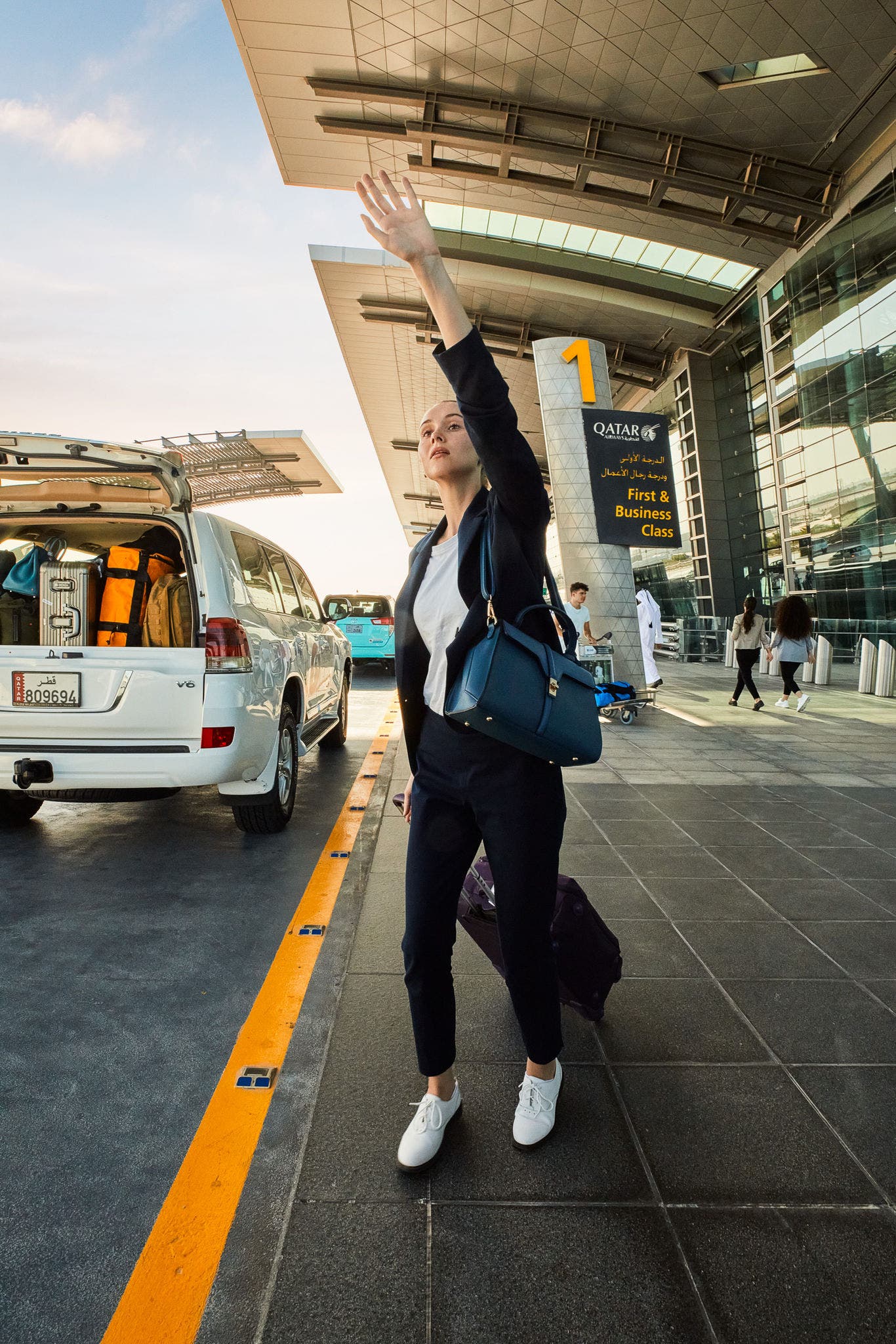
Get a Karwa taxi
The blue Karwa taxis are synonymous with public transport in Qatar. Qatar Rail has partnered with Karwa Services to help you book convenient taxi and limousine services. Use the “RAIL” discount promo code and request your next ride through the Karwa app.
Doha metro services
Riding on the Qatar metro is convenient and pleasant for everyone in the family. Services you can expect include:
Luggage storage
Wifi & usb ports, three carriage types, wheelchair access, cctv security, hop on the doha metro .
Want to see it in action? Get a glimpse of the smooth and rapid metro journeys in Qatar’s capital city.

Hours of service
Open from early until late, the Doha Metro system is accessible most of the time.
Sunday – Wednesday: 5:30 AM to 11:59 PM
Thursday: 5:30 AM to 1:00 AM
Friday: 2:00 PM to 1 AM*
Saturday: 6:00 AM to 11:59 PM
*Take note of Friday morning shutdown for Friday prayers. Many museums, restaurants and sights are also closed during this time.

How to get tickets for the metro
There are two main classes of travel: standard (which includes family carriages) and goldclub. Get your tickets from any station vending machine, and pop into a goldclub office in one of the Doha Metro stations for a goldclub card.
Tip: Travel cards are for frequent customers only and designed to be topped up.
Have questions about the Doha Metro system?
Do you have to pay for children’s tickets.
Children under the age of 5 travel for free. Then, children will be charged at the same price as adults.
How do I pay for my travel card?
You can buy your ticket (travel card) at the station vending machines. There are some retailers which also sell metro cards too.
How often do metro trains arrive?
The trains arrive every 6 minutes so you won’t be waiting long.
Do I have to tap or insert my travel card?
Yes, you ‘tap in’ and ‘tap out’ your Doha metro card at the start and end of every journey.
How long does it take to get from station to station?
As the trains are high speed, the average journey from station to station is just 3 minutes.
Can I travel beyond Doha on the metro?
You can go beyond Doha to the neighbouring city of Lusail. Doha metro connects with Lusail tram network at Lusail and Legtafiya stations. There are also plans for water taxis to link Al Wakra with Al Khor, so watch out for that.
Which metro line goes to the Mall of Qatar?
The Green Line.
Which is the biggest metro station in Doha?
Msheireb is the largest station at the heart of Doha metro map. Here, Red, Gold and Green Lines all meet.
Continue to explore
Explore the world of Qatar
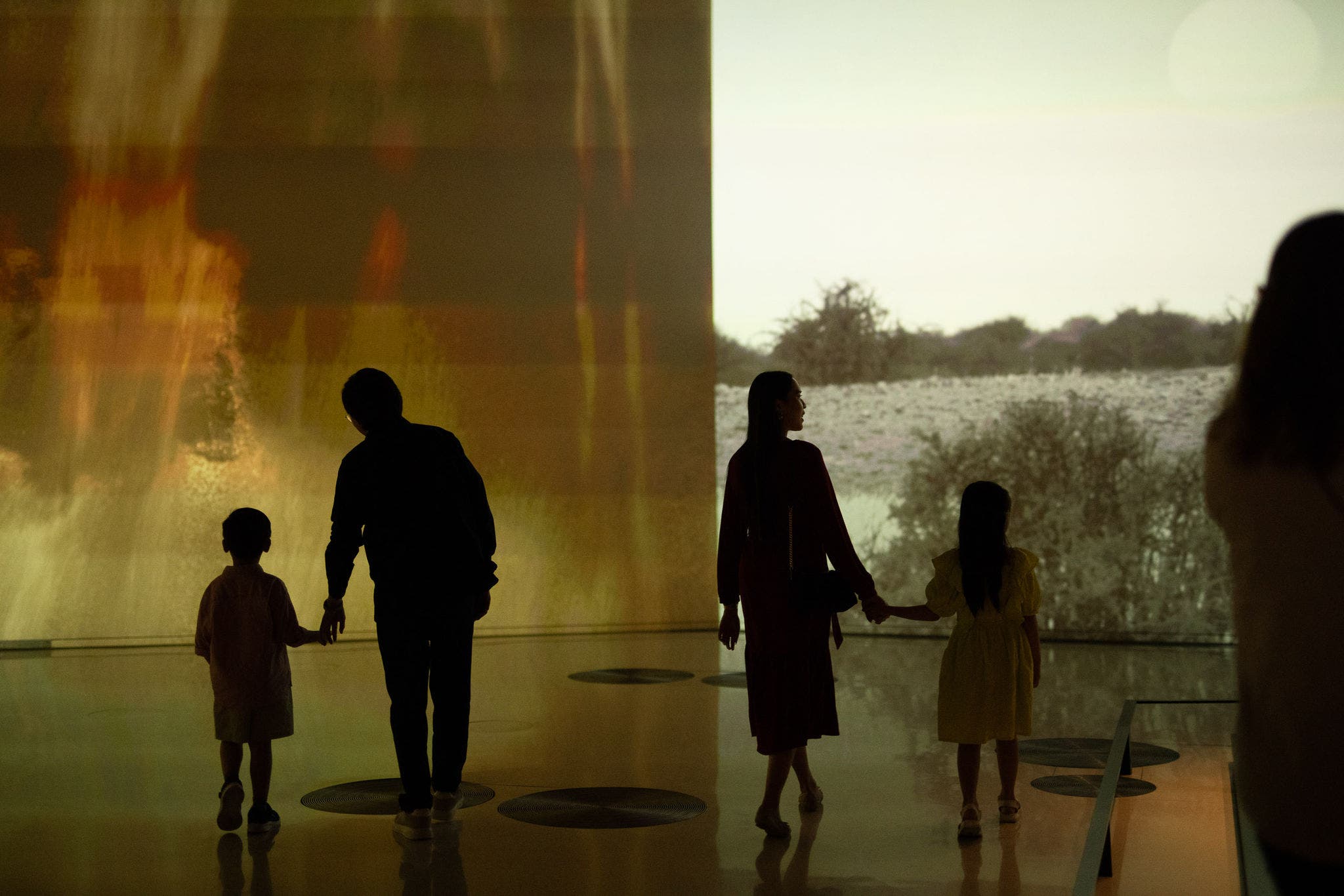
Safety in Qatar
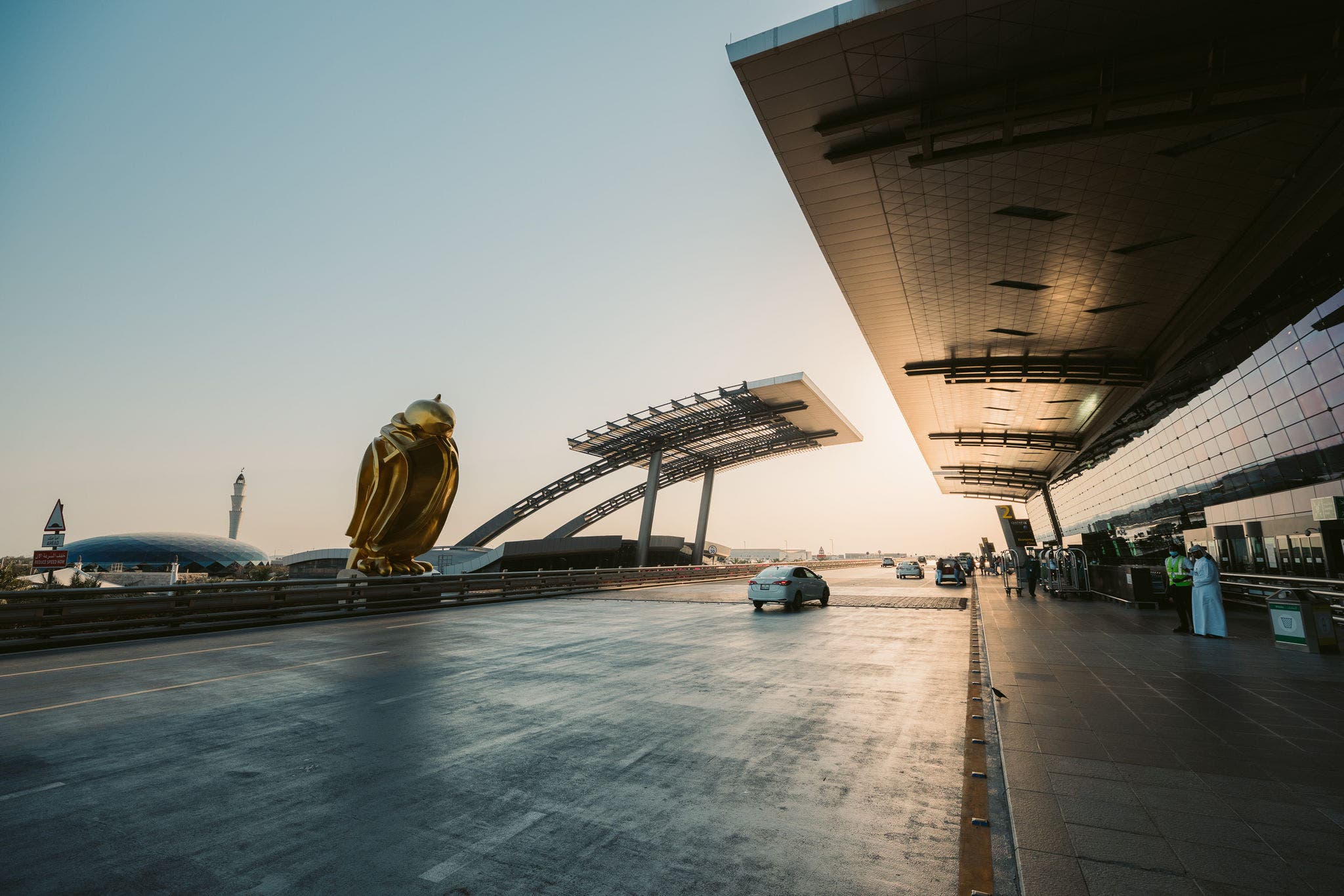
Hamad International Airport

Things to know before travelling
Want to travel visa-free? Check if you qualify here.
Getting here
Planning your trip to Qatar? Check how to get here.
Travel tips
Make the most of your visit with our handy travel guide.
Getting around
From a dhow boat to our world-class metro, here’s how to easily explore Qatar.
- Latest edition
- Media Centre
- Terms & conditions
- Privacy notice
- Corporate website
- Amiri Diwan
- Cookie policy
- Qatar Tourism brand logos
- Subscribe to our newsletter
- Cookie settings
© 2024 Qatar Tourism | All rights reserved

Accessibility Links

Is it safe to travel to Qatar right now? Latest travel advice
Qatar has been key to negotiations between israel, hamas and the west. here’s what you need to know about visiting this arab nation, including foreign office advice.

Q atar became the first Middle Eastern country to host the Fifa World Cup in 2022, putting it on the tourist map for those who might be looking for an alternative to the UAE. Like its regional neighbour, there is awe-inspiring architecture to gawk at and traditional souks selling herbs and spices, but the Arabic nation is also a centre for traditional and modern art. Among the highlights are the Museum of Islamic Art and Mathaf (the Arab Museum of Modern Art), both of which are in the capital, Doha.
Since the conflict between Israel and Hamas began, Qatar has also become an important regional mediator, despite the fact that it doesn’t border the countries involved. Here’s what you need to know.
Main photo: Mina District at Old Doha Port, Qatar (Alamy)
This article contains affiliate links, which may earn us revenue
What’s the latest government advice about travelling to Qatar?
The UK Foreign Office (FCDO) does not currently have any travel advisories about Qatar . However, the FCDO says that terrorism in the country can’t be ruled out, and busy areas such as hotels, shopping centres and beaches could be targets.
Advertisement
You should also be aware of local laws and customs, as well as actions that might cause offence. For example, public displays of intimacy could lead to arrest, while both men and women should dress modestly. During Ramadan, eating and drinking in public, as well as swearing, playing music or dancing would be considered offensive.
Has Qatar been affected by the Israel-Hamas conflict?
Qatar does not border Israel, so it’s not directly affected by the conflict with Hamas. However, Qatar does have close ties with Hamas and has been an important regional mediator — it was key in the negotiations that secured the release of two American hostages held by Hamas.

Is it safe to travel to Qatar right now?
The high-profile death of British travel industry executive Marc Bennett in 2019 raised questions over whether it’s safe to travel to the country. However, there’s no reason not to travel to Qatar right now. The Arab nation is considered a safe place to visit and crime levels are also generally low.
What are Qatar’s entry requirements?
Those using a full British passport to travel to Qatar for tourism can get a free 30-day visa waiver on arrival. You can extend this through the Qatar Ministry of Interior. However, you will need a confirmed return or onward ticket, and your passport must be valid for a minimum of six months from the day you arrive.
If you’re travelling on a non-standard British passport, such as one from a British Overseas Territory, you will need a visa. You will also need a visa if you’re visiting the country for another reason.

Is Qatar safe for female travellers?
Qatar is generally considered safe for female travellers. However, you should still take care when walking or travelling alone, especially at night. You should also use reputable taxi firms.
The FCDO says that personal attacks, including sexual assault and rape, are relatively rare but they do happen. However, local laws mean that the burden of proof rests heavily on the victim. If they cannot prove that the sex was non-consensual, it may lead to their prosecution.
Those who have been sexually assaulted are advised to call the British Embassy on +974 4496 2000 for advice. It has also provided written guidance for victims of rape or sexual assault in Qatar.
Is Qatar safe for LGBT travellers?
Homosexuality is illegal in Qatar. Same-sex relationships can lead to imprisonment or the death penalty.
• Best hotels in Qatar • Best things to do in Qatar
Take me there
Inspired to visit Qatar but yet to book your trip? Here are the best packages from BA Holidays and Expedia .
Sign up for the Times Travel Newsletter here .
Related articles

Wander-Lush
Qatar Travel Tips: 19 Useful Things to Know Before You Visit Doha
Considering a stopover in Doha or planning your first visit to Qatar for the FIFA World Cup? This list of 19 incredibly useful Qatar travel tips covers everything from dress code and rules for couples, to budgeting, and how to move around the city.
In many respects, Qatar is a closed book.
Before I decided to sign up for a layover in Doha , I knew very little about this tiny oil-rich Islamic country in the Persian Gulf. Like many travellers before me, it was precisely this sense of the ‘unknown’ that lured me to visit Doha – that, and the promise of fragrant souqs, harbours crowded with dhow boats and men parading the streets with falcons perched on their wrists instead of Rolex watches.
What is it like to travel in the richest country in the world per capita, where more than 85% of the local population are expats or migrant workers?
Most people’s experience of Qatar will be like mine: A somewhat superficial brush with a small but socially complex country on an extended layover. For practical reasons, Qatar is a great place to break up a long flight (the trip from Australia to Georgia , for example).
Even if your visit is fleeting (heck, even if you’re not planning to leave the airport), there are certain things you should know about Qatar in advance to make your experience in this beautiful Middle Eastern nation smoother and more enjoyable.
From what to wear, to which day of the week to avoid and a few sure-fire tips to save money, here are 19 incredibly useful Qatar travel tips to help you prepare for your visit.
Please note: This post contains affiliate links, meaning I may earn a commission if you make a purchase by clicking a link (at no extra cost to you). Learn more.
Doha Quick Links
- Find cheap flights to Doha: Use Skyscanner to find the best price on Doha flights. Remember you may have to book direct through Qatar Airways if you want to take advantage of the free stopover.
- Do you need a visa for Qatar? Qatar offers visa-free entry for citizens of more than 80 countries Check to see if you need a Qatar visa on iVisa .
- Do you need proof on onward travel? Use OneWayFly to obtain proof of onward travel and/or a hotel reservation.
- Insure your trip: HeyMondo is my preferred provider for single-trip and annual travel insurance.
- Stay connected: Set up an Airalo eSIM for Qatar before you leave home and hit the ground running when you arrive in Doha.
- How to get from Doha Airport to the city: Take the newly constructed metro or organise a private hotel transfer from Hamad International Airport (recommended if you’re arriving late at night or early in the morning).
- Doha car hire: Keen to explore more of Qatar? Use Discover Cars to find the best price on a rental car in Doha.
- On a short layover? This Doha transit tour starting and ending at the airport is a great way to see the city when you have limited time.
- 5 essentials to pack for Doha: Universal travel adapter ; an insulated water bottle and LifeStraw (Qatar is one place you definitely want to stay hydrated!); a travel scarf with hidden pocket (handy for visiting mosques or covering up in the sun); sun protection gear – including a wide-brim hat and sunglasses at a minimum; a copy of the latest Lonely Planet guidebook for Qatar .
Watch my Doha travel video
19 practical qatar travel tips, 1. a qatar airways stopover is the easiest way to organise your doha visit.
If you want a taste of Doha, you can squeeze a lot into a 24 or 48-hour layover .
In an effort to encourage more people to travel with the national carrier and break-up their journey in Doha, Qatar’s tourism board introduced a program to incentivise extended layovers. Booked through Qatar Airways , a stopover can take a lot of the hassle out of organising a trip.
It works like this: Choose your airfares to and from Doha (they must be with Qatar Airways, and you must leave a minimum gap of 12 hours between flights). You’ll then be eligible for a ‘free stopover’ of 1-4 nights. Benefits include a heavy discount on a selection of 4 and 5-star hotels , and a free transit visa (if you need one).
If your stopover is shorter (6-12 hours), you can opt for a discounted Doha transit tour instead.
2. The climate is extreme, so time your visit wisely
Remember when Qatar was first named host country for the 2022 FIFA World Cup? Most newscasters’ first reaction was to point to the absolute unsuitability of the climate for outdoor sports.
Qatar has a desert climate – hot and dry are the imperative words here. But that doesn’t mean it’s sweltering year-round.
Cool season (December through February) is mild, with temperatures averaging 14-25 Celsius most days. Desert gusts are tempered, skies are clear, and rainfall is minimal, giving Doha a spring-like atmosphere. This is by the far the best time to visit Qatar (and for the record, this is when the World Cup will take place, too).
With that in mind, Qatar is certainly not a place you want to visit in the peak summer months. May through September is much warmer, with max temperatures hovering around the low 40s. July, traditionally the hottest month of the year, should be avoided at all costs. It’s not unusual for the mercury to soar to 43 Celsius in June, July and August.
You should also consider whether your visit will coincide with the Holy Month of Ramadan . Qatar is an Islamic nation, and majority of people observe the 30 days of fasting and prayer. Under Sharia Law, it is illegal to eat or drink in public in Doha during Ramadan. Most cafes and restaurants close during the day, while shops, museums and the souq all observe restricted hours.
Other rules, such as dress code , are more strictly enforced during the Holy Month.
3. Doha is surprisingly affordable
The official currency in Qatar is the Qatari riyal (QAR) . Like in neighbouring Oman , it’s relatively easy to make your money stretch further. We drew up a rough budget and withdrew cash on our first day in Doha (ATMs, by the way, are ubiquitous, and most venues accept payment by credit card). This was one of the rare times we over-estimated our spend and had to change most our riyals back into USD at the airport.
In the end, we spent around 40 USD per person per day on food and transport in Doha. That was enough to cover three solid meals, a few trips on the metro, and tickets for the Museum of Islamic Arts.
Food portions are huge, so you can easily save money by sharing meals. The metro is cheaper than taking a taxi (more on that later), and you can save even more cash by avoiding ticketed attractions (our biggest expense by far, aside from accommodation, was museums).
4. Tipping is customary, but not mandatory
There are no hard and fast rules about tipping in Qatar – but it is increasingly expected in Doha, especially from tourists.
If you’re happy with the service, it is considered polite to offer waiters and other staff a small gratuity. Generally speaking, 10-15% is acceptable for restaurants, cafes and bars, while you should aim to tip your taxi driver or gas station attendant 5-10 QAR.

5. Doha shuts down on Friday mornings
Friday prayers, or Salat al-Jumu’ah , are an obligatory religious ritual in Qatar. Walking around on a Friday morning, Doha can feel like a ghost town as most people are busy attending mosque.
Restaurants, cafes and museums don’t open until 1pm or 2pm on Fridays . Two of the city’s most popular attractions, the Museum of Islamic Art and Souq Waqif, are both closed on Friday mornings. If your Qatar layover falls on a Friday, keep in mind that you’ll have to structure your itinerary around these restricted hours.
Also bear in mind that the Doha metro doesn’t start running until 2pm on Fridays.
6. There is a dress code when you visit Doha
Much like rules for couples, there seems to be tension between official policy and public consensus when it comes to the dress code in Doha.
From my observations, locals and expats in Doha tend to dress modestly in their daily life. Long, loose-fitting clothing seems to be the preferred style. As Qatar is a Muslim country, tourists are generally expected to cover their shoulders and knees at a minimum (although I did see a few short skirts and spaghetti tops on the street during my visit).
Showing too much skin in public places is frowned upon. Swimsuits are only allowed in hotel pool areas or on private beaches , and are forbidden on public beaches.
The rules are of course a lot stricter if you’re visiting a mosque or religious site . You won’t be permitted entry to a mosque unless you’re covered up and wearing a scarf over your hair (women). It surprised me to learn that you might be denied entry to the Museum of Islamic Art if your shoulders and knees aren’t covered. This is the only place I’m aware of that imposes such restrictions.
The dress code at the airport is more liberal, but I still recommend carrying a light cardigan and wearing long pants if you’re transiting through Doha and want to feel more comfortable.
The consequences for donning inappropriate attire range from awkward stares from locals through to be removed from a venue by security or even being fined by police. Dress codes are more strictly enforced during Ramadan. Needless to say, small towns and rural areas are more conservative, so you should always dress modestly outside Doha .
7. Arabic is the official language, but English is widely spoken
Being a former British protectorate, English is widely spoken in Qatar. Arabic is the nation’s official language for daily use, but when it comes to business, trade and official procedures, English is the go-to.
You’ll find that most Qataris speak English, especially those who work in tourism. We had no issues getting around with English only.
8. It’s perfectly safe to visit Doha as a (solo) woman
Provided you dress appropriately and avoid certain behaviours such as drinking in public (more on that later), Doha is a perfectly safe place for solo female travellers .
Crime rates are very low in Doha across the board, which is why it’s constantly ranked among the top 3 safest cities in the world . Streets are well-lit at night, and apart from the odd overexcited taxi driver, there’s not really a ‘hassle culture’ in Doha. You won’t be approached in the souq, for instance.
One thing you should be aware of is ‘men-only’ establishments – tea houses and restaurants that are closed off to Qatari ladies and foreign women alike (this should be pretty obvious if there’s only dudes around). Most public spaces are of course mixed, but some restaurants and cafes have special ‘family areas’ for women and children. The Doha metro has family carriages if you want to sit with other females.
Here are more tips for visiting Doha as a solo female traveller .
9. There are particular rules for couples
If you’re travelling to Qatar as a couple, there are particular local laws and social customs to be aware of.
Until recently, unmarried couples were prohibited from sharing a hotel room. This rule seems to have been relaxed in recent years, at least for foreign tourists. According to recent reports, it still applies to Qatari couples and expats living in the country.
This was our experience: We booked a hotel room in Doha under my husband’s name. Despite having different surnames in our passports, we weren’t asked to explain the nature of our relationship. We were married at the time (this was actually our honeymoon), so we weren’t particularly concerned – I had a copy of our marriage certificate ready to show if needed.
If this is something you’re worried about, try sticking to international hotel chains (for example, the InterContinental) or just email your accommodation in advance to double check the house policy.
Homosexuality is illegal in Qatar, but it’s not unusual for men (for example, business travellers) to share a hotel room. See here for more information and advice about queer travel in the Middle East .
Public displays of affection (including hand-holding) are illegal in Qatar.
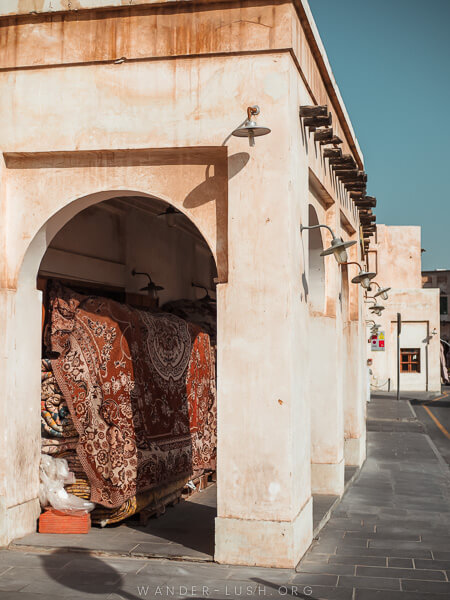
10. Some hostels are single-gender
If you’re booking a hostel in Doha, make sure you check whether it’s gender-separated . Some hostels only offer men’s dorms (for example, Casper Hostel ), while T Ladies Hostel is female-only. To make things confusing, the policy isn’t always obvious at first.
Q Hostel offers both men’s and women’s dorms – but no hostel in Qatar offers mixed dorms. Couples, therefore, may be better off upgrading to a mid-range hotel.
A final note on accommodation in Doha: Airbnb is legal in Qatar and can be an affordable alternative to a hotel. You can find some beautiful self-contained apartments with sea views around The Pearl, and simpler private rooms near the souq.
11. Qatar is incredibly multicultural
Another thing that surprised me about Qatar is that 85.7% of the population is made up of expats . India, Bangladesh and Nepal are the top three countries represented.
As a visitor, you feel Qatar’s cultural diversity on several levels. Firstly, the plurality of faces on the street is obvious and gives Doha a cosmopolitan feel. Travellers also benefit from an incredibly rich food scene , including some great Indian and Yemeni restaurants.
But you can’t ignore the fact that many of these workers are low-paid (or unpaid) labourers . As far as I know, forced labour isn’t directly related to the tourism industry in Qatar, but it’s still something to keep in mind when you’re visiting Doha.
The ILO is a great resource for information on this topic.
12. Qatari culture is relatively accessible
Gulf nations like the United Arab Emirates are known for flashy developments and high-rise buildings. But Qatar is a little closer to Oman in terms of local culture. Downtown Doha is quite modern, but it’s clear that the government has gone to great lengths to ensure preservation of local culture in the architecture.
Despite the fact that it’s reconstructed, Souq Waqif still appears true to style. The Falcon Market is the perfect place to experience one of Qatar’s most beloved local customs, falconry.
My advice is to skip the shiny shopping malls and stick to traditional markets.
13. Doha is home to one of the world’s most sustainable city districts
One of the first things that strikes you about Doha is how new and polished everything feels. There are grungy corners, yes – but for the most part, even the oldest parts of the city (including the souq) have been entirely reconstructed.
This has pros and cons. On the downside, Doha lacks the gritty charm and ‘rustic authenticity’ of Muscat , for example.
On the plus side, when you re-build a city from scratch, the only limit is your imagination. In the case of Msheireb, one of Doha’s oldest districts, planners envisaged a futuristic, sustainable city when they went about revitalising the area.
Msheireb Downtown combines traditional Qatari design with green technology. The district has the highest concentration of LEED-Certified buildings in the world . Streets are laid out to catch the Gulf breeze and shade walking routes and windows, limiting the need for air conditioning.
The whole area is solar powered and planted out with native flora. Massive underground car parks have been installed to limit traffic and encourage people to walk or cycle.
Pretty neat, huh?

14. Qatar is a tea-drinking nation
Skip the water, skip the booze: Grab a tea instead.
Tea is ubiquitous in Doha, and enjoying a cuppa or two (or three) at a local cafe or chai house is a must-do for every visitor. In the mornings, you can find groups of men sitting around playing dominoes and sipping short glasses of bubbly, brick-coloured karak tea .
Karak was introduced to Qatar by Indian and Pakistani expats in the 1950s. A version of Masala Chai, karak is a heady brew of tea, milk, sugar and spices boiled low and slow for maximum flavour. The traditional Qatari version contains only cardamom , but cinnamon, cloves or ginger may also be added.
A cup of karak typically costs 1-4 QAR depending on the establishment.
15. You should avoid drinking tap water (and alcohol)
Qatar isn’t a dry country, but alcohol is strictly regulated . Booze served in hotels is subject to a ‘sin tax’ and expensive as a result. If you’re serious about saving money, avoid drinking.
There is conflicting information online, but the general consensus is that you shouldn’t drink the tap water in Doha. Drinking fountains around mosques and on the Corniche should also be avoided, particularly if you have a sensitive stomach.
Apart from being a terrible blight on the environment, there are also concerns over imported bottled water in Qatar containing higher than normal levels of arsenic. The easiest solution is to carry a Steripen or LifeStraw and purify your own water .
16. It takes a ridiculously long time to cross the street
Walking around Doha can be a strange experience. First of all, pavements are usually deserted (especially in the middle of the day) as most people opt to drive.
One peculiarity we noticed is the time it takes to cross the street. Every intersection is fitted with lights and pedestrian crossings in a bid to control heavy traffic in the inner-city. These run on a ‘smart system’ that uses sensors to detect cars and direct flows.
As a result, it’s not uncommon to have to wait 10 minutes or more to cross the street in Doha. But wait you must – drivers are unpredictable, speeding is common, and jaywalkers face fines of up to $140.

17. There are construction sites everywhere!
Like many other Middle Eastern countries in the Gulf Region, parts of Qatar and especially Doha do feel like one big construction site.
New power plants, expressways, stadiums and apartment blocks are mushrooming in every corner of the city, and this does mean that some streets are dusty and noisy as a result. Take care when you’re walking around Doha, and if you’re a particularly light sleeper, it might be worth checking if your accommodation is close to a worksite.
18. Metro is the best way to get around
If you prefer not to walk, you can always take an Uber . But the most cost-effective way to move around Doha is using the city’s relatively new underground metro system.
Completed in May 2019, it’s one of the fastest driverless trains in the world. Departures are frequent, it’s very easy to navigate, and most major tourist attractions (including the Corniche, the museum and Katara Cultural Centre) have dedicated ultra-modern stations.
Best of all, a one-way metro fare costs just 2 QAR . Single tickets can be bought from machines inside the stations – no cards or top-ups necessary.
There are three metro lines: The north-south red line (handy for getting to Katara Cultural Village), and the east-west gold and blue lines. Running hours are still being negotiated, but at the time of writing, the metro runs from 6am until 11pm Saturday to Wednesday, from 6am until midnight on Thursdays, and from 2pm until midnight on Fridays.
In December 2019, the metro expanded to include a stop at Doha’s international airport , making this an efficient way to get into the city when you first arrive in Qatar.
19. You need a car to explore beyond the city
Public transport within Doha is efficient and affordable. But if you want to explore beyond the city centre, you’re going to need a car.
Here, you have two options: Either hire your own wheels and self-drive – the easiest way to explore on. your own terms – or join an accompanied tour . A day tour is the best way to go if you have limited time in Doha and you want to see something specific (such as the Inland Sea or Zakreet).
If you have more time and want the freedom to seek out far-flung sand dunes and coastal fishing villages, consider renting a car at Hamad International Airport . All major companies are represented. I suggest using Discover Cars to find the best price on a rental for your dates and requirements.
Qatar is a signatory of the United Nations convention and thus it is a legal requirement for all foreigners to present a valid International Driving Permit (IDP) when hiring a car. Driving in Qatar is fairly straightforward, but for safety reasons, it’s best to limit your driving to daylight hours.
Where to stay in Doha
We stayed at Saraya Corniche for 2 nights during our Doha stopover. Our room was comfortable but a little dated – however, we really loved the central location walking distance from the waterfront and souq.
If we had our time again, we would choose either the InterContinental or Souq Waqif Boutique Hotel . The latter is set right in the heart of the souq and features roomier, more luxe suites than Saraya.
If you’re on a shorter layover and you prefer to stay near the airport, Oryx Transit Hotel is the top choice.
What are your top Qatar travel tips? Leave your advice in the comments below.
Things to know before you Visit Doha: Pin it

One Comment
Great travel tips while visiting Qatar. Saving it!
Leave a Reply Cancel reply
Your email address will not be published. Required fields are marked *
- Subscribe to future posts
Cookies on GOV.UK
We use some essential cookies to make this website work.
We’d like to set additional cookies to understand how you use GOV.UK, remember your settings and improve government services.
We also use cookies set by other sites to help us deliver content from their services.
You have accepted additional cookies. You can change your cookie settings at any time.
You have rejected additional cookies. You can change your cookie settings at any time.
- Passports, travel and living abroad
- Travel abroad
- Foreign travel advice
Safety and security
You should also read FCDO ’s overall travel advice .
There is a high threat of terrorist attack globally affecting UK interests and British nationals, including from groups and individuals who view the UK and British nationals as targets. You should remain vigilant at all times.
UK Counter Terrorism Policing has information and advice on staying safe abroad and what to do in the event of a terrorist attack. Find out how to reduce your risk from terrorism while abroad .
Terrorism in Qatar
Terrorist attacks in Qatar can’t be ruled out.
Attacks could be indiscriminate, including in places visited by foreigners. You should remain aware of your surroundings, keep up to date with local media reports and follow the advice of local authorities.
Terrorists issue statements threatening to carry out attacks in the Gulf region. These include references to attacks on western interests, including:
- residential compounds
- military sites
- transport and aviation interests
- restaurants
- shopping centres
- large demonstrations
Military activity in the Red Sea area
Military activity is currently underway in response to attempts by Houthi militants to prevent movement of international shipping in the Red Sea. While the area of activity is limited to the Red Sea and Yemen, there is a possibility that Travel Advice for nearby countries could change at short notice. You should continue to monitor Travel Advice and follow any relevant instructions from local authorities.
Political situation
Events in the region, including political developments, have an impact on local public opinion. Be aware of local sensitivities on these issues. Follow news reports and avoid public gatherings and demonstrations. There is the potential for increased tension on Fridays.
If any incidents occur, monitor local media reports and follow the advice of the local authorities.
Crime levels are low, but take sensible precautions to protect yourself and your belongings.
Sexual assault
Female visitors and residents should take care when walking or travelling alone, particularly at night, and should use reputable taxi companies.
Personal attacks, including sexual assault and rape, are relatively rare, but do happen. Sentences can be severe. However, Qatari law places a high burden of proof on the victim to demonstrate that sexual relations were not consensual. If they are determined to have been consensual, the victim or attacker may still face prosecution for the offence of sex outside of marriage.
If you have been sexually assaulted, contact the British Embassy for advice (00 974 4496 2000). You can also read our guidance for victims of rape or sexual assault in Qatar .
Laws and cultural differences
Qatar is an Islamic country. Respect local traditions, customs, laws and religions. Make sure your actions do not cause offence, especially during the holy month of Ramadan or if you intend to visit religious areas. There may be serious penalties for doing something that might not be illegal in the UK but is in Qatar.
Personal ID
You are required by law to carry a physical form of identification at all times.
Dress modestly in public, including while driving:
- women should cover their shoulders and not wear short skirts
- men and women should not wear shorts or sleeveless tops in government buildings, healthcare facilities or malls - if you do, you may be asked to leave or be denied entry
Ramadan is a holy month for Muslims. The dates vary by year and country. Ramadan in Qatar in 2024 will likely start on 10 March and will last for 30 days. During this time, do not:
- eat, drink, smoke or chew gum in public in the daytime, including in your car
- play loud music or dance
- swear in public
Get more advice when you arrive from your tour guide, hotel or business contacts.
You should also:
- check opening hours of shops and restaurants
- be aware that if hotels and restaurants are providing food or drink in fasting hours, they may separate you from Islamic guests, for example with screens
- follow local dress codes – clothing that doesn’t meet local dress codes may cause more offence at this time
- be aware that driving may be erratic, particularly when people are trying to get home at dusk
- be patient and show tolerance
Alcohol laws and bans
Only licensed hotels, restaurants and bars can sell alcohol. Expatriates living in Qatar can get alcohol on a permit system. Don’t carry alcohol around with you (except to take it on the day of collection from the warehouse to your home). The legal drinking age in Qatar is 21. Places serving alcohol will ask for original photo IDs (copies are not accepted) upon entry.
It is illegal to drink alcohol or be drunk in public. For example, if you drink in a non-licenced public place, you could get a prison sentence of up to 6 months or a fine up to 3,000 Qatari riyals.
Relationships outside marriage
Any intimacy in public, between any couples (including between teenagers), can lead to arrest.
Living together while unmarried is illegal in Qatar. Sex outside marriage is illegal for both same-sex and opposite-sex couples. You can be arrested and punishments can include a fine, a custodial sentence and deportation once the sentence is complete.
Because of laws on sex outside marriage, if someone becomes pregnant outside marriage, both partners could face imprisonment or deportation. Doctors will ask for proof of marriage during antenatal checks.
An unmarried woman who gives birth in Qatar may also face problems registering the birth of the child in Qatar, and could be arrested, imprisoned or deported. To get a birth certificate from the Qatari authorities, you must provide a marriage certificate. Authorities may compare the marriage date against the estimated date of conception.
Homosexual behaviour is illegal in Qatar. See our information and advice page for the LGBT+ community before you travel.
Organisers of protests need to get permission from the Ministry of Interior. This must be done in advance and cannot be spontaneous.
Swearing and rude gestures
Swearing and making rude gestures are considered obscene acts. You can be jailed or deported. Take particular care when dealing with police and other officials.
Smoking and e-cigarette bans
Smoking is prohibited in all closed public spaces including educational institutions, healthcare facilities, public transport, malls, restaurants and government buildings.
It is illegal to vape/use an e-cigarette or import vapes into the country. You can be arrested and punishments can include a fine, a custodial sentence or deportation.
Illegal drugs and prison sentences
There is zero tolerance for drugs-related offences in Qatar, including some medications which are legal in other countries, but illegal in Qatar. See bringing medication into Qatar
Penalties for using, trafficking, smuggling and possessing drugs (even residual amounts) are severe. Punishment can include lengthy custodial sentences, heavy fines and deportation.
Using cameras and binoculars
Be aware of cultural sensitivities when filming or photographing people as taking pictures of people without their consent can cause offense.
Some visitors attempting to film or photograph near religious, military, government or construction sites have been arrested. If in doubt, seek permission.
Journalistic activity
Journalists must get permission from the Qatar News Agency (QNA) to film or photograph as part of their work and enter the country on a visiting press permit. This permit allows you to take technical equipment like cameras through airport customs.
Social media
There are strict privacy laws in Qatar. Posting material (including videos and photographs) online that appear to insult, slander or are culturally insensitive, may be considered a crime. Individuals have been detained, prosecuted and convicted for posting this type of material.
Financial crimes
Financial crimes include:
- giving somebody a cheque which bounces (including post-dated and ‘security’ cheques)
- non-payment of bills (for example hotel bills or car hire)
You may also be liable for cheques that you have signed on behalf of a company.
Financial crimes can be punished with:
- imprisonment
- deportation
- freezing bank accounts and other assets
If you have unpaid loans or financial commitments you won’t be able to cancel your residence permit, and may be prevented from leaving Qatar, including to go on holiday. All debts should be settled in full before you leave the country. Ask your bank for a certificate to confirm you have no outstanding debt once you have cleared the balance.
If you have sponsorship, it may be blocked, which will prevent you from transferring to a new sponsor (employer). Any end of service benefits you may be entitled to could be used to offset the outstanding debt.
Deportation
If you are found guilty of an offence, you may be deported. This can happen whether or not the judgement included deportation. This may affect your ability to return to Qatar.
Transport risks
Licences and permits.
Get a 1968 International Driving Permit (IDP) if you plan to drive on your UK licence. You cannot buy an IDP outside the UK, so get one before you travel.
You can drive in Qatar with a valid UK driving licence for up to 6 months with a valid IDP.
Driving in Qatar
The driver and front seat passenger must wear a seat belt at all times. It is illegal to use a mobile phone while driving, and you could be fined 500 Qatari riyals.
Flashing your lights in Qatar can mean a driver is coming through, rather than giving way.
It’s illegal to drink and drive, and there is zero tolerance for it. Driving under the influence of alcohol is punishable by a custodial sentence of between one month and 3 years, a fine of 10,000 to 50,000 Qatari riyals, or both. Offenders may also be deported.
Even minor expressions of ‘road rage’ like rude gestures can attract significant penalties. You may be:
- banned from leaving the country until your case has been resolved – serious cases may take up to 6 months to be heard
Check the Metrash2 app before trying to leave the country, which lists any outstanding traffic violations. If you have an outstanding violation, you could be detained at immigration and denied onward travel. Fines for all violations should be settled in full before you travel.
Road safety
Road discipline is very poor; speeds are high and accidents are common. If you have an accident, stay with your vehicle until the police arrive and tell you that you can leave. It’s illegal to leave the scene of the accident, but if no one has been injured and it’s safe to do so, you can move your vehicle to a safer place. You’ll need to get a police report for insurance purposes.
Excursions to the desert can be hazardous unless in a properly-equipped 4x4 vehicle. You should:
- travel in convoy with other cars
- take a supply of water and a mobile telephone
- leave travel plans with friends or relatives
Transport safety
Don’t accept lifts from strangers. Use only licensed taxis or other recognised forms of public transport. If using apps, check licence plates and confirm with drivers the passenger name. Let someone know you are on the way home and the registration details of the car.
Take care when travelling by dhow. The safety of these vessels may not be up to UK standards. Make sure life jackets are available.
Many areas of the Gulf are highly sensitive, including near maritime boundaries and the islands of Abu Musa and the Tunbs in the southern Gulf. Vessels entering these areas have been detained and inspected, and there have been occasional arrests. Make careful enquiries before entering these waters or visiting ports.
Regional tensions may also affect your route. Vessels operating in the Gulf of Oman, Northern Arabian Sea, Gulf of Aden and Bab El Mandeb regions may be at increased risk of maritime attack.
Related content
Is this page useful.
- Yes this page is useful
- No this page is not useful
Help us improve GOV.UK
Don’t include personal or financial information like your National Insurance number or credit card details.
To help us improve GOV.UK, we’d like to know more about your visit today. We’ll send you a link to a feedback form. It will take only 2 minutes to fill in. Don’t worry we won’t send you spam or share your email address with anyone.
DohaGuides YouTube Channel
Qatar Customs Prohibited Items: Avoid These Things (2024)
Doha Guides Team regularly reviews this article to ensure the content is up-to-date and accurate. The last editorial review and update were on 16 January 2024.
Like most other countries, the State of Qatar has a list of items which are restricted, prohibited or banned for import to the country. Travellers must have all the information they need before attempting to import items into Qatar to avoid penalties, including fines, seizure, or prosecution.
This article will explain the goods and items you should not carry while travelling to Qatar. We have also compiled a list of Qatar Customs Prohibited Items and Restricted Goods.
What Are Prohibited and Restricted Goods?
Qatar customs prohibited items, qatar customs restricted items, prohibited items on flights, restriction and customs duty on parcels.
Broadly speaking, these goods are divided into two types: prohibited goods and restricted goods.
Prohibited Goods
These are the goods whose import or export is prohibited (banned) under Qatar Customs Law and provisions of the Common Customs Law for the GCC States.
Restricted Goods
These are the goods whose import or export is restricted under Qatar Customs Law and the provisions of the Common Customs Law for the GCC States. Importing these types of goods requires permission from the appropriate authorities. The importer must obtain the necessary permits from these government agencies before importing the goods.
The following items are not allowed to be imported in person or as baggage:
- Weapons, firearms, ammunition and explosives of all kinds are banned. For import under special circumstances, permission from the Ministry of Defense is required and should be obtained in advance.
- Narcotic drugs of all kinds and types are banned . All narcotics and recreational drugs, including cocaine, heroin, cannabis, opiates, and their derivatives, are banned.
- Alcoholic Beverages are not to be imported under any condition. Qatar has a licensing system for alcoholic beverages through which authorised entities can sell them.
- Pork meat and related products are also not allowed to be imported. However, non-Muslims can buy them through licensed distributors .
Other Prohibited Items
In addition to the above, other items are banned based on the provisions of the Common Customs Law for the GCC States and other laws. A broad list of banned items includes (not limited to):
- Immoral items in all their forms – print, video, audio, hard disk etc.
- Devices and materials that are considered to be radioactive sources
- Radar jammers/other unauthorised communication devices
- Forged and duplicate currency
- Publications and artwork that contradict or challenge Islamic teachings and values
It is also prohibited to bring goods infringing the laws relating to commercial and industrial property rights and copyright protection concerning which resolutions have been issued by the competent authorities.
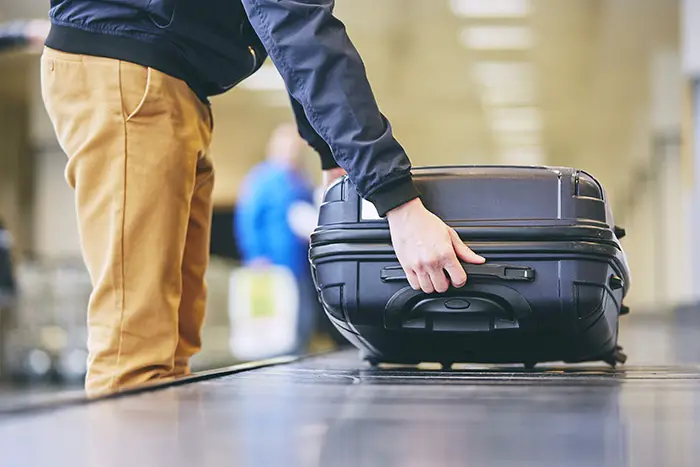
The following items may be imported subject to restrictions:
Personal items and gifts up to a maximum value of QAR 3,000 are allowed. Luggage and gifts must be of a personal nature and in non-commercial quantities.
Electronic items: Used video cameras, photo cameras, mobile phones and laptops for personal use are allowed.
Cigarettes: A maximum of 400 cigarettes can be imported by an adult passenger. It can be replaced by (20) cigars, or (300) grams of chopped tobacco for pipes, or (500) grams of raw tobacco, or (2) kilos of hookah tobacco, provided that its value does not exceed QAR 3,000.
Alcoholic beverages are not to be imported under any condition.
Essential medicines for personal use in limited quantities can be carried. However, you must ensure they do not contain any banned ingredients. It is a good idea to keep a doctor’s prescription. Here you can read more about carrying medicines to Qatar.
Currency and precious metals : Anyone possessing any currency, bearer negotiable instruments, precious metals (gold, silver etc.) or stones equivalent or higher than QAR 50,000 or its equivalent in foreign currencies must fill out the declaration form and submit it to Customs. Here you can read more about carrying currency and metals to Qatar .
Importing pets requires an import license. Certain breeds of pets are not allowed. Here you can read more about bringing pets to Qatar . Endangered animal species and related products are also restricted.
Personal luggage and used household appliances brought by citizens residing abroad and foreigners coming to reside in the country for the first time are normally exempted from customs duties.
Some more items are not allowed to be carried on a flight. Please refer to your airline’s website for such information.

If you are carrying an unusual item or think it may be restricted, be sure to contact your airline ahead of time or a representative at the airport.
An individual who imports an item personally or through a purchase of a product via the Internet must verify the type of commodity to ensure that it is not restricted or prohibited. According to the Unified Customs Procedures guide, incoming parcels and personal mailings whose value does not exceed QAR 1,000 are exempted from customs duties.
DohaGuides.com has compiled this information from the official websites and publications (last verified on 8 October 2022). However, there may be more items that are restricted or banned. Please be advised to take all precautions to ensure that you do not carry any item you are unsure of, either in person or in your luggage.
Related Articles
- Carrying Medicine To Qatar: Important Things To Know
- Qatar Customs Cash Limit and Gold Allowance
- Drinking Alcohol in Qatar: Important Laws To Know
- Doha Airport Transit Requirements and Procedure
Copyright © DohaGuides.com – Unauthorized reproduction of this article in any language is prohibited.
References: Qatar General Authority of Customs – Importing goods Al Meezan Law Portal Qatar General Authority of Customs – Passenger allowance Common Customs Law of the GCC States
39 thoughts on “Qatar Customs Prohibited Items: Avoid These Things (2024)”
Leave a comment cancel reply.
Your email address will not be published. Required fields are marked *
hello, Are the following items allowed if I keep then in check-in bags? 1. salt, sugar, some other spices 2. hair oils 3. perfumes
is it allowed to bring some Ayurvedic medicine from india for personal use, are there any restrictions…
Hi Riyas, Usually it is allowed (unless the quantity is too much). Just make sure to carry the original purchase bill.
I’m travelling to Qatar and want to bring some spices as a gift. Am I allowed to bring it in my checked luggage?
Hi Elle, Spices for personal use is allowed.
Hi am i allowed to bring canned goods like corned beef ? About 5-10 cans of it
Hi Mary-ann, Usually there is no problem in bringing food items for personal consumption. However, you can double-check with your airline if there is any restriction on the flight.
Hi it is allowed to bring gluta supplement 20 bottles in Qatar?
Hi Mar, 20 bottles of any medicine (even if legal) will require special permission or you will be questioned by Customs officials. If this is something that you can’t buy in Qatar, please check with the Qatar Government Helpline at +974-44069999 or [email protected] .
Is betel leaves and areca nuts allowed in Qatar airports?
Hi Yoosuf, We couldn’t find any official information about prohibition on these. However they are banned in some GCC countries including UAE. So please contact the Qatar Government Helpline at +974-44069999 or [email protected] .
Gurkha for personal use RMD
I need to carry pirated windows 10,msoffice,tally in pendrive to Oman will they allow or not iin the airport
Am trying to contact a Friend who was coming back to bahrain for work from vacation outside bahrain.by now ican get hold of him i suppose he got arrested in the airport . So if the airport police have them how am i supposed to look for him in the system and know the charges
Whether company seal Olive oil allow and how much liter
Start typing and press enter to search


Qatar Layover: The best things to do in Doha While on a Transit
Are you going on a flight with transit/stopover in Qatar soon? Check out the Qatar layover deals with Qatar Airways and you can enjoy so many cool things to do in Doha!
When we talk about Qatar, the first two things that come to our mind is oil and money. I know this very well because I’ve worked in one of the biggest oil industries in Iraq where I’ve met a lot of expats who came to the Middle East for the same thing– career and money. I even lived and worked in Kuwait too!
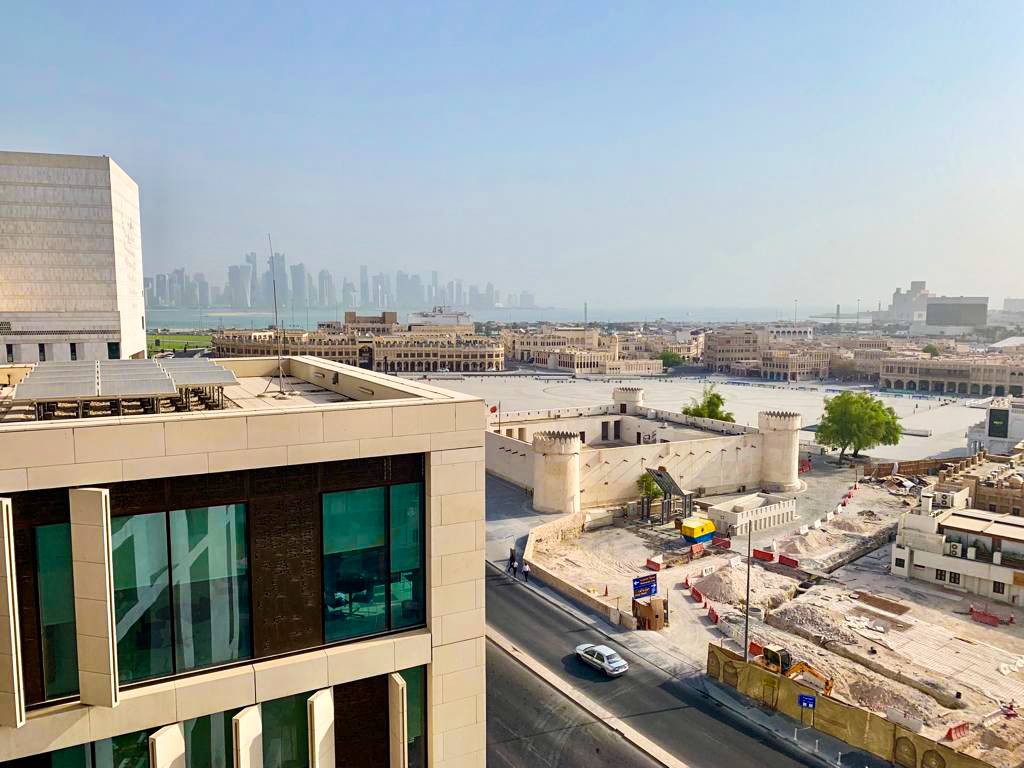
As I went out of the Airport in Doha, Qatar, everything felt familiar. The Middle East had been my home for quite some time and I feel very much acquainted to the busy atmosphere. The difference is that this time, I’m not here for work or money, I’m here on a 20-hour layover and I’m visiting as a tourist 🙂
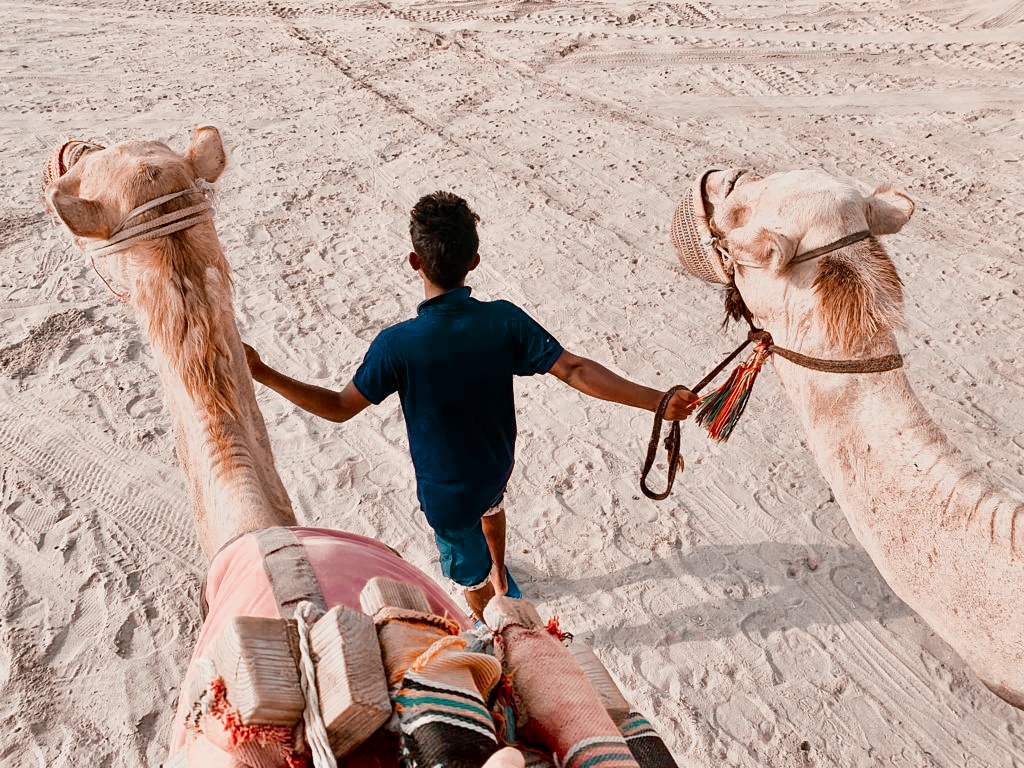
Knowing that there’s a lot of Filipinos working here, I also organized a meet-up with our readers. In fact, Ate Analiz and her daughter were kind enough to pick me up from the airport and drove me to the hotel. Anyway, here’s what you can do on a long layover in Doha!

WHERE I STAYED IN DOHA, QATAR

For this long layover, I was hosted by Alwadi Hotel Doha – MGallery in a very nice suite. I was received very well by their staff and their king-size MyBed™ totally felt like I’m lying down on clouds! This is perfect since I’ve been traveling non-stop for the past few weeks.

They also have an ala carte Breakfast for all the guests, separate living area, Free WiFi, Two TVs, Nespresso machine, BOSE docking station, spacious desk (which is perfect since I am still working even on vacation), Minibar, separate shower and bathtub, Premium bath amenities exclusive to the hotel, bathrobes and slippers sized for each guest, Makeup mirror and Salon-quality hairdryer.

You can also nourish your mind, body, and soul at their M Spa or burn the stress away at their M Fitness Center. Oh, what about lounging in their pool area? 🙂

Another thing is that it is located in the heart of the city and is conveniently next to Souq Waqif where you can shop and dine. Oh, have I told you that this hotel is licensed to sell alcohol?? This is one of the best things here, so this place is perfect for expats and tourists to just drink the night away!

For those whose traveling with the same airline for your onward flight, you might want to check with them if they’d be paying for your accommodation. Other airlines have that! Otherwise, I recommend you book Alwadi Hotel Doha – MGallery .
WHAT TO DO IN DOHA, QATAR ON YOUR LONG LAYOVER
1) Go on a Desert Safari and Camel Ride – Aside from meeting some of our lovely readers in Doha over drinks and dinner, I also went on a Desert Safari and Camel Ride with Ate Analiz and her daughter all arranged by my favorite experience giving website, Tinggly Experience .

Our tour started with a hotel pick-up and we traveled all the way to Khawr al Udayd, the famed ‘inland sea’ that is an inlet of the Persian Gulf and was once a notorious settlement of Arabic pirate.

This is a true Arabian experience as we drove up the sand dunes with a 4×4 and learned about the desert’s history from our knowledgeable tour guide. We then had a magical camel ride (too bad it ain’t a magic carpet haha). Seeing this beautiful place as a tourist is something I’d love to do all over again!
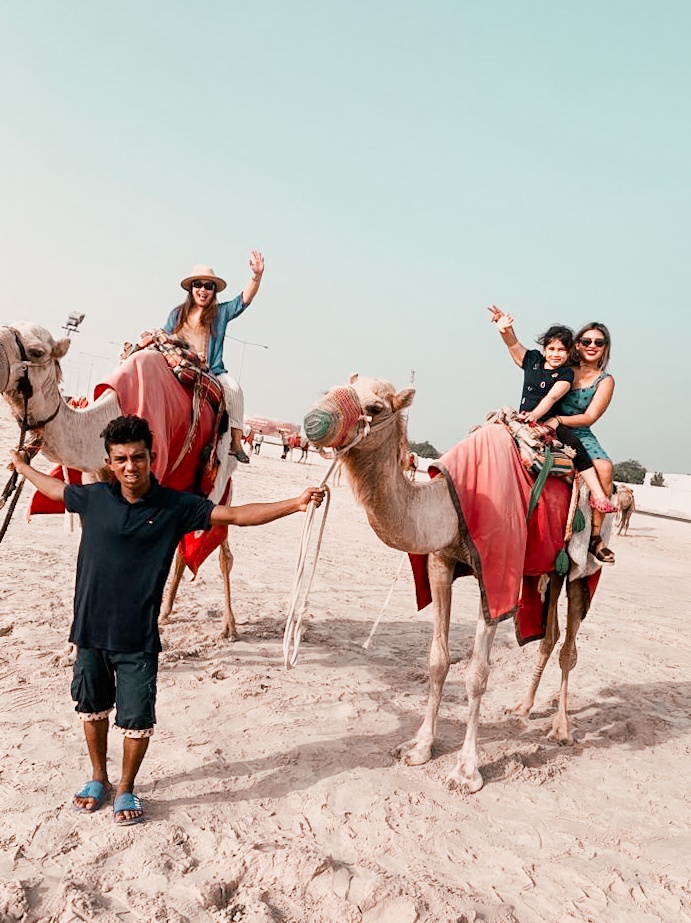
2) For Filipinos, eat at Jollibee!- For Filipinos based abroad (just like me), I know that the famous Jollibee Chicken Joy and Spaghetti is something you always miss from back home. This is the perfect opportunity to have that sumptuous food we’ve always been craving for!

3) Visit the Katara Cultural Village, The Pearl, Museum of Islamic Art, and the Souq Waqif- Did you know that when you have a 6-hour layover in Doha with Qatar Airways, you can tour the city with them for just more or less 20 USD?? It’s gonna be one heck of a memorable layover as you embark on this historical tour.

Katara Cultural Village features wonderful walking areas lined up with pretty restaurants and cafes taking you to a wondrous historical, artistic, and luxurious getaway. Watch out for workshops, events, and concerts that you might encounter while you’re here!
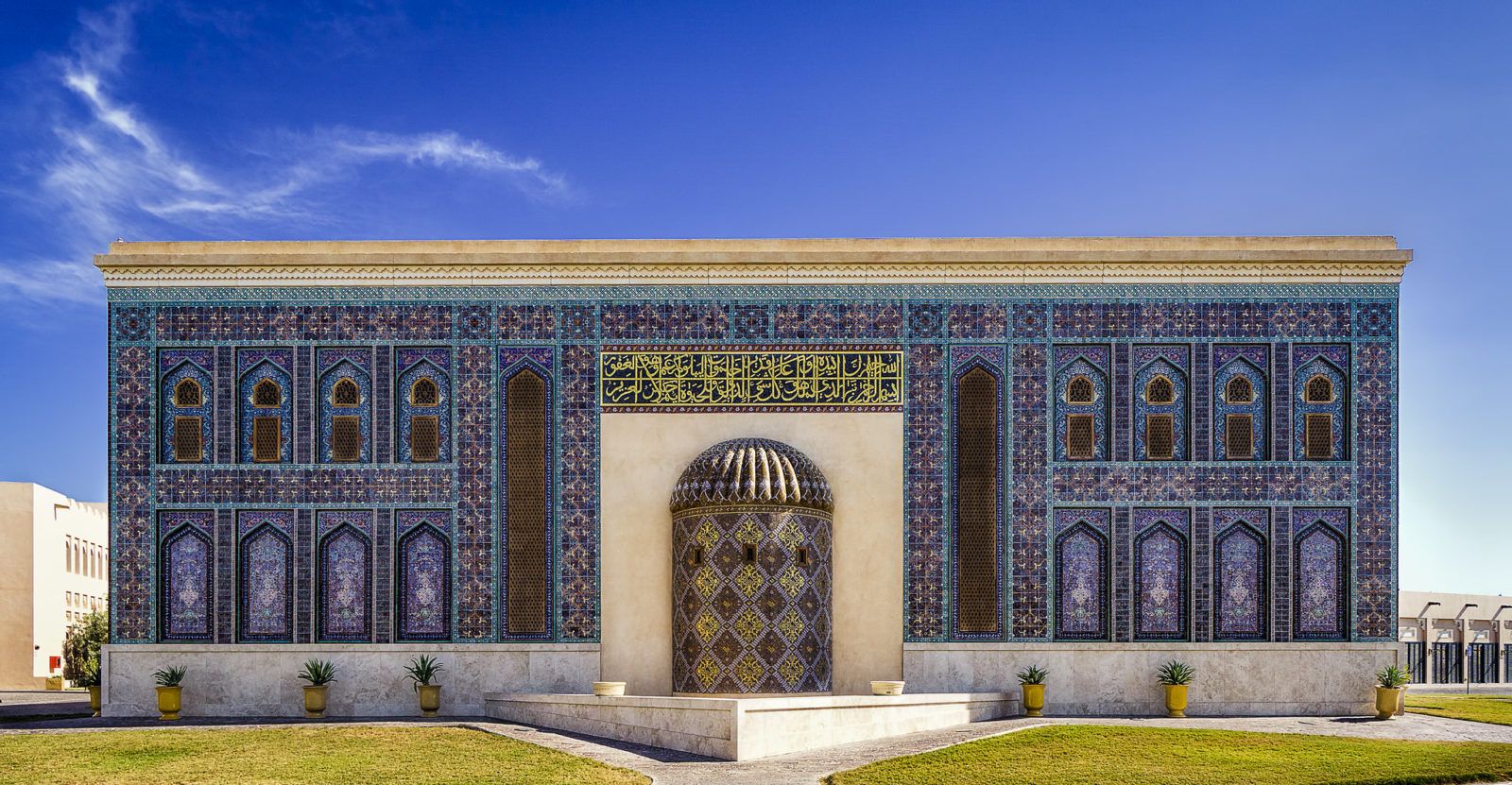
The Pearl is a man-made island and is the most glamorous address in the Middle East. This place boasts luxury in every corner as you see branded stores, yacht-lined marinas, towering residential towers, and upscale hotels. It’s not hard to see why this is also called the Arabian Riviera.
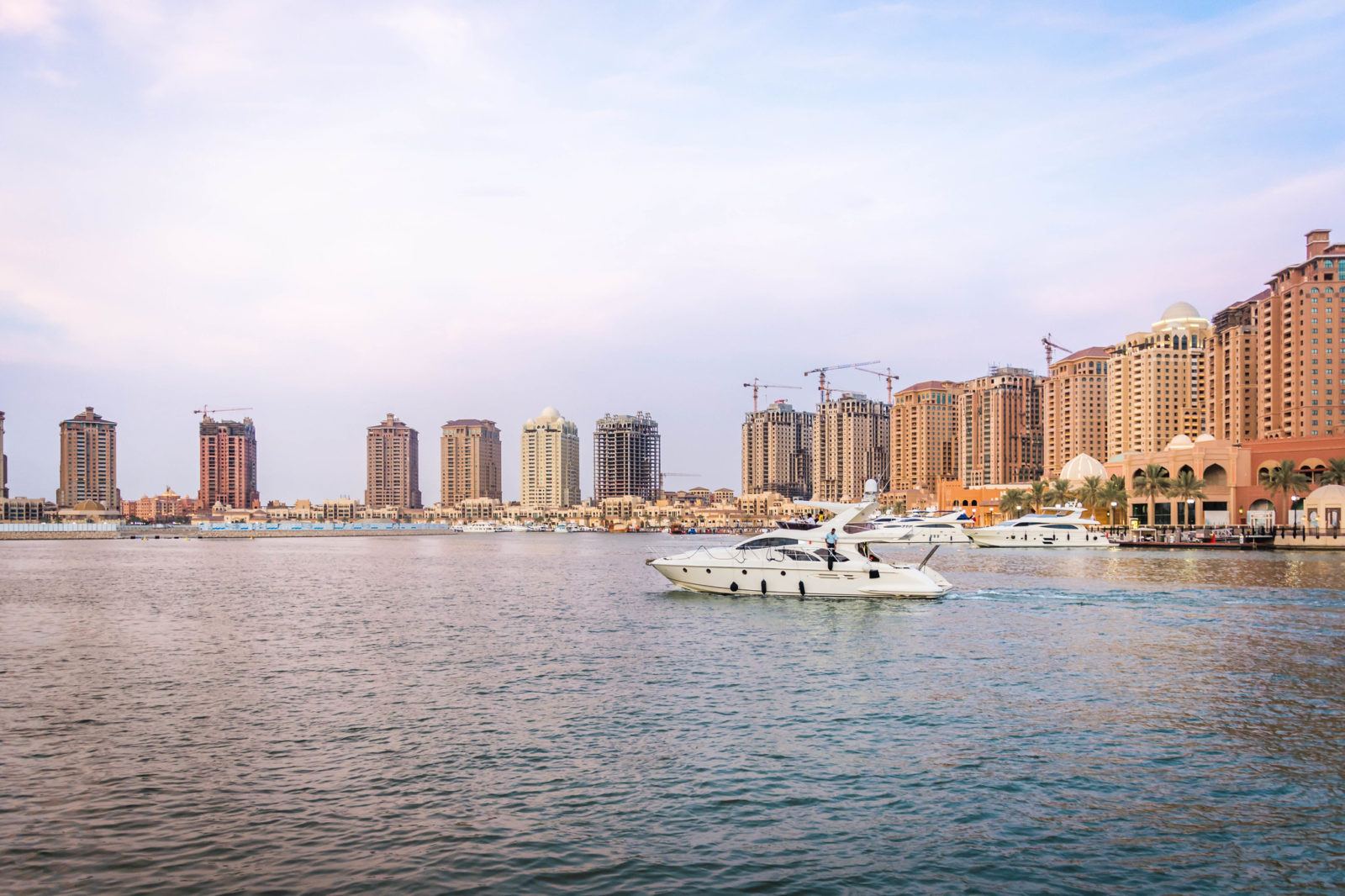
Another stop is the Museum of Islamic Art where you’ll get to see marvelous art pieces from 3 continents which date as far back as 1,400 years ago. Its famous collection includes metalwork, ceramics, jewelry, woodwork, textiles, and glass.
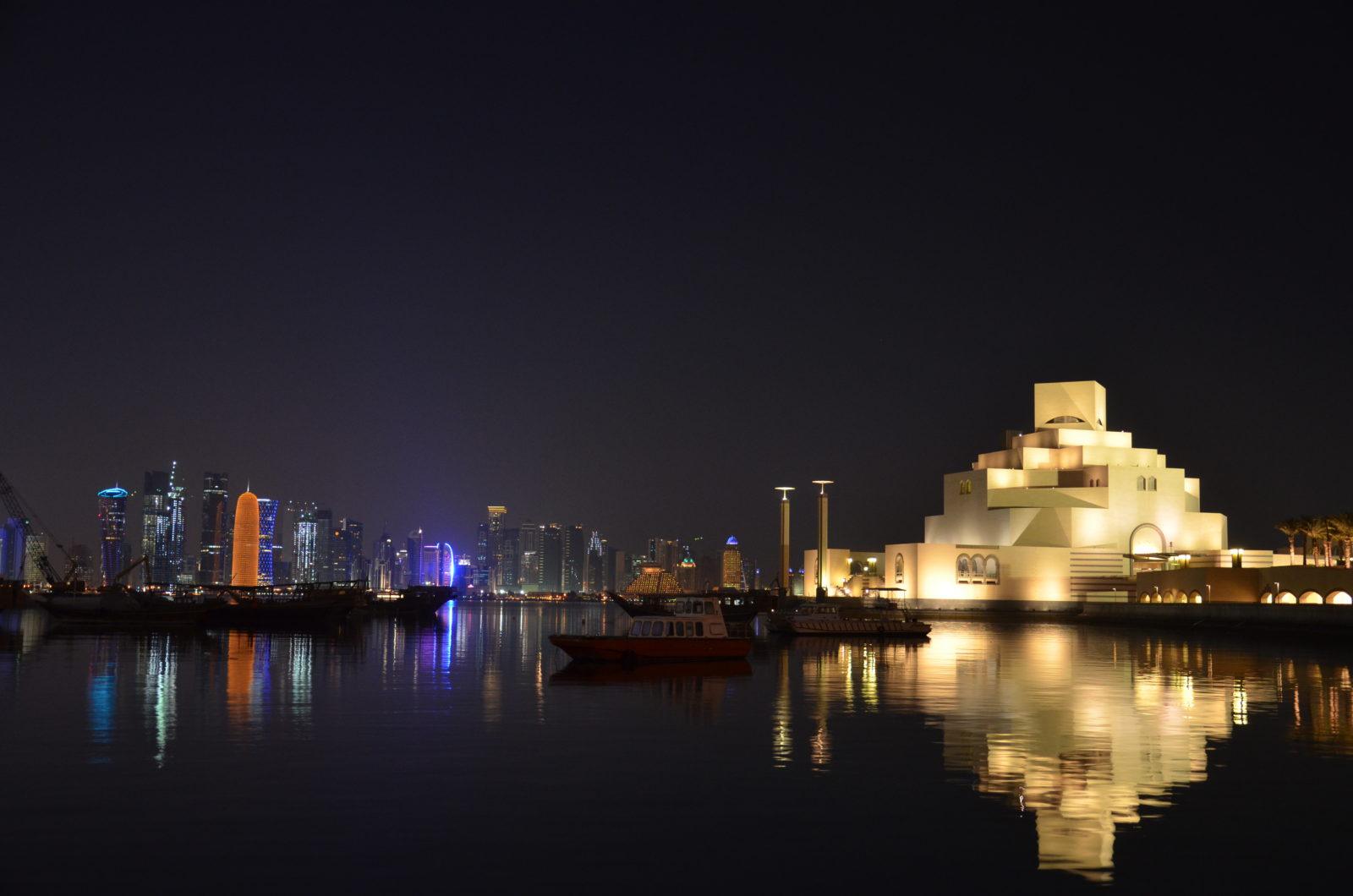
Finally, the Souq Waqif where you can just wine, dine and watch the world go by. This is the perfect place to shop for souvenirs, spices, fabrics, and perfume!

That’s it for this post! I hope you enjoy your long layover as much as I did. To all our wonderful readers in Qatar, thank you for meeting me and thank you for always inspiring me! 🙂

Are you on Pinterest? Pin these!

Leave a Reply Cancel reply
Your email address will not be published. Required fields are marked *
This site uses Akismet to reduce spam. Learn how your comment data is processed .
6 thoughts on “ Qatar Layover: The best things to do in Doha While on a Transit ”
My wife and I will have a 9-hour layover in DOHA on our flight back to Manila, what is the best thing to do while as a transit passenger in DOHA terminal?
I am planning to fly Qatar Airways to visit Chicago (USA) during early June 21 and will try yo get a 11 hour lay over in Doha. Help me plan for the trip within a slim budget for two persons. Do i Have to take out my luggage during this transit ? Thanks
Hi! Do I need a visa if I want to go out of the airport during a layover?
Yes you need a visa.
I have an 8 hr layover in Doha next month and this is what I found out today at the Qatar airways website… https://www.qatarairways.com/en-no/visa-free-arrival.html
Nationals from more than 80 countries* can now take advantage of visa-free entry into Qatar, thanks to our new visa waiver upon arrival. Citizens of these countries will not need to apply or pay for a visa; instead, a multi-entry waiver will be issued at the airport, upon presentation of a valid passport (valid for a minimum of six months) and a confirmed onward or return ticket.
But if you can see, Philippines passport holders is not on the list because we need a visa. Another option for you – you can apply for e-visa (very quick) if you have valid visa USA, Canada, Schengen, Australia etc
COPYRIGHT DISCLAIMER: Many of the articles on Two Monkeys Travel Group are guest posts by a number of Approved Contributors and are hosted by Two Monkeys Travel Group. Approved Contributors control their own work and post freely to our site. This includes all text and images that they use within their own work. All contributors are instructed to follow internationally recognised copyright and intellectual property guidelines. Two Monkeys Travel Group takes its own responsibilities very seriously, so if you feel that any part of this work is abusive in any way, please send us an email so that we can investigate - [email protected]
DISCLOSURE: Please note that some of the links above are affiliate links. So when you make a purchase we sometimes make a small commission, at no extra cost to you. The cost to you remains the same, sometimes even cheaper if we have negotiated a special deal for our readers.We use all of the companies we have listed here and that’s why they are in this list, but of course we need to keep Two Monkeys Travel Group running as well as it can, which is exactly what you’re helping with if you do decide to buy or book something through an affiliate link! If you have any more questions about the companies we use or any other companies you’re looking at, just email us and we’ll be happy to help. Please see our full disclaimer page for more information.
Written by Kach Umandap
Founder of Two Monkeys Travel Group. Since 2013, Kach has visited all the 7 continents (including Antarctica) and 151 countries using her Philippines Passport. In 2016, she bought a sailboat and went on sailing adventures with her two cats - Captain Ahab & Little Zissou in the Caribbean for 2 years. She now lives in Herceg Novi, Montenegro where she's enjoying her expat life and living on a gorgeous Stonehouse. She writes about her experiences traveling as a Filipina traveler with a PHL Passport. Also tips on backpacking trips, luxury hotel experiences, product reviews, sailing & adventure travel.
5 Reasons Why You Should Visit TeamLab Planets in Toyosu, Tokyo
Al hamra residence – my best stay in the uae, anavrin ras al khaimah – the perfect retreat for corporate junkies, where to stay in the gambia [best hotels and resorts in the gambia], 8 best things to do in the gambia, west africa, related posts, mongolia visa for uk citizens- tips on how british passport holders can get a tourist visa to mongolia, 3-day puerto princesa itinerary & travel guide [palawan, philippines], diy travel guide series: land travel from ho chi minh to siem reap, 9 best things to do in oman [with suggested tours], previous post, travel guide for bristol, united kingdom – where to go, attractions to visit, 13 best things to do in somerset [england], subscribe to our newsletter.
Receive tips on how you can live a sustainable long-term travel lifestyle!
- First Name *
- Comments This field is for validation purposes and should be left unchanged.

IMAGES
VIDEO
COMMENTS
Visit the COVID-19 crisis page on travel.state.gov for the latest information. Visit our Embassy webpage on COVID-19 for information on conditions in Qatar. Check with the airlines regarding any flight cancellations and/or restrictions on flying. Please register for the Smart Traveler Enrollment Program if you are not already enrolled.
Latest update:We continue to advise exercise normal safety precautions in Qatar. Conflict in the Middle East and Gulf region could affect Qatar. Avoid protests and large public gatherings. Monitor media for updates and follow the advice of local authorities (see 'Safety'). You must purchase approved local health insurance if you're staying in ...
COVID-19 Information. As of April 1, 2023, Qatar has removed all COVID-19 travel restrictions. There are no current COVID-19 related restrictions or requirements for travelers entering Qatar. For the most up to date guidance on Qatar's COVID-19 policies, please see the Qatar Ministry of Public Health website . As of May 12, 2023, noncitizen ...
For the latest on travel information and updates visit: www.moph.gov.qa & www.visitqatar.qa Version 7 - 16 March 2022 At the airport show the COVID-19 health app used locally that reflects visitor's immune status Board your flight and head to Qatar On arrival, download and activate your
Are there any COVID-19 restrictions for transit passengers in Doha? Due to the ongoing COVID-19 pandemic, there may be specific restrictions and requirements for transit passengers in Doha. It is crucial to stay updated with the latest travel guidelines and regulations provided by the Qatari authorities and your airline.
Doha Guides Team regularly reviews this article to ensure the content is up-to-date and accurate. The last editorial review and update were on 02 February 2024. Since August 2017, the State of Qatar has been allowing visa-free entry for citizens of more than 80 countries, making it the most open country in the Middle East.
Routine vaccines. Be sure that your routine vaccinations, as per your province or territory, are up-to-date before travelling, regardless of your destination. Some of these vaccinations include measles-mumps-rubella (MMR), diphtheria, tetanus, pertussis, polio, varicella (chickenpox), influenza and others.
Interim Guidelines for Sample Collection, Handling, Storage and Transportation of Clinical Specimens from Persons Suspected of Coronavirus Disease 2019 (COVID-19) Interim Guidelines for Management of Suspected/ Confirmed Cases of Coronavirus Disease 2019 (COVID-19) . COVID-19 - Guidance for the public for hand hygiene an d using gloves .
Hours of service. Open from early until late, the Doha Metro system is accessible most of the time. Sunday - Wednesday: 5:30 AM to 11:59 PM. Thursday: 5:30 AM to 1:00 AM. Friday: 2:00 PM to 1 AM*. Saturday: 6:00 AM to 11:59 PM. *Take note of Friday morning shutdown for Friday prayers. Many museums, restaurants and sights are also closed ...
However, it is imperative to note that the list of eligible countries can change, so it is always recommended to double-check the latest requirements before you travel. You can see the list of nationalities and read more about Qatar Visa On Arrival here. Transit Visa. Since 2016, Qatar was offering a complimentary transit visa for up to 96 hours.
Getting a visa to visit Qatar. The first step to visiting Qatar as a tourist is acquiring a visa. Currently, citizens of more than 95 countries are eligible for a visa on arrival, with visitors from some destinations able to stay for up to 90 days, and others up to 30 days. Those who can stay for up to 30 days can also extend their visit visa ...
The Peninsula Online. Doha: Qatar's Government Communications Office (GCO) has introduced an interactive guide for travellers coming to Qatar to easily understand the travel requirements. You can ...
Qatar is generally considered safe for female travellers. However, you should still take care when walking or travelling alone, especially at night. You should also use reputable taxi firms. The ...
Qatar is open to international visitors from all countries. Moreover, Qatar has removed most of its COVID-19 entry restrictions, including submitting a PCR test or undergoing quarantine on arrival to Qatar. Nevertheless, travellers visiting Qatar from China are still required to undergo some restrictions before travelling to Qatar.
19 practical Qatar travel tips 1. A Qatar Airways stopover is the easiest way to organise your Doha visit. If you want a taste of Doha, you can squeeze a lot into a 24 or 48-hour layover.. In an effort to encourage more people to travel with the national carrier and break-up their journey in Doha, Qatar's tourism board introduced a program to incentivise extended layovers.
Due to the ongoing COVID-19 pandemic, there may be specific travel restrictions and guidelines for transit passengers in Doha. It is important to stay updated with the latest travel advisories and follow all safety protocols implemented by the airport and the airline to ensure a safe and enjoyable journey.
Alcohol laws and bans. Only licensed hotels, restaurants and bars can sell alcohol. Expatriates living in Qatar can get alcohol on a permit system. Don't carry alcohol around with you (except to ...
Cyprus. Known for its gorgeous beaches and spectacular archaeological sites, Cyprus is a great travel option that's just a four-hour flight away. And since Monday May 10, the Mediterranean island has been open to vaccinated travellers from Doha. Cyprus is currently operating on a colour-coded system for entries, and Qatar is currently on the ...
Qatar Customs Prohibited Items. The following items are not allowed to be imported in person or as baggage: Weapons, firearms, ammunition and explosives of all kinds are banned. For import under special circumstances, permission from the Ministry of Defense is required and should be obtained in advance. Narcotic drugs of all kinds and types are ...
You're not actually entering Qatar, you're just passing through in transit, which means you're not going to pass through Customs. Now, there may be a random check of incoming passengers at the gate, but these are rare, and if you have a prescription, aren't entering the country and only have personal use quantities, they are highly unlikely to ...
Traffic Department announces peak-hour ban on entry of trucks and large buses in Doha. Published: 01 Nov 2023 - 09:46 am | Last Updated: 01 Nov 2023 - 09:56 am
WHAT TO DO IN DOHA, QATAR ON YOUR LONG LAYOVER. 1) Go on a Desert Safari and Camel Ride- Aside from meeting some of our lovely readers in Doha over drinks and dinner, I also went on a Desert Safari and Camel Ride with Ate Analiz and her daughter all arranged by my favorite experience giving website, Tinggly Experience.
This private Doha transit tour will show off a small slice of Qatar, with round trip transportation to and from the airport. This transit tour is available throughout the day, so no matter when ...